Top 10 Interview Questions For Yacht Crew & How To Answer Them
Whether it’s your first interview or fiftieth, it’s always a good idea to be well rested and prepared. To help our crew candidates nail their next interview, we’ve compiled a list of the top 10 most popular interview questions for working on yachts and superyachts with helpful tips on how to answer them.

What about your current position do you dislike?
With this question, it’s very important to remain professional but be honest. For example, a good answer would be “ I enjoy the yacht and crew however; the role does not challenge me and I am frustrated not stepping up to a bigger role .”
What are the elements that your perfect job would be made up of?
The top four things we would suggest would be; Great Owner, Crew, Terms and Travel.
What gives you the highest level of job satisfaction?
Rather than focusing solely on the personal aspects that you could answer with think about, think about the customer such as “ Happy guests after a trip and getting to be on a beach with friends when time allows ”.
Tell me about your last three jobs.
Rather than going through the ins and outs of each job, choose factors such as how you were managed and personal relationships with people, your career path and personal development within those jobs.
Why did you take each position? Why did you leave each?
Be honest with this question as reference checking will unearth any skeletons. If you needed seatime or wanted to explore the Pacific, tell your interviewer.
If I offered you your ideal job today, what factors would delay you taking that job immediately?
This questions always puts you on the spot and under pressure. Answering can I have 24 hours to think it over, will show methodical thinking. This is not an opportunity to inform the yacht you are waiting on another offer and you will take the higher. Do however tell the interviewer you are speaking with another yacht.
What is the most significant impact you’ve had on your current workplace in the last year?
There are potentially two avenues you can take with this, you can show personality or show a professional contribution. Personality – “ I brought together the departments and boosted morale by ….. organising dinner, hikes, sailing” . Or a professional answer highlight such as “ I amended safety procedures onboard, aligned budgets and developed a new work rota ”.
How have you improved yourself in the last year?
Take this as an opportunity to sell yourself; outline what courses you have taken and why. Explain how you have reflected on your workmanship since leaving your last yacht, e.g. you will be more detailed / assertive / relaxed / mature / disciplined.
What would your previous employers say about you?
As it’s often difficult to review how others perceive you, repeat was has been mentioned during your appraisals and reviews. I hope they would say I am reliable, someone they would rehire, however avoid the clichéd answers.
Tell me a little about your personality.
This is another opportunity to sell yourself. Try and navigate away from clichés and think what really makes you as a person stand out. Remember your answer may come back to haunt you.
If there is anything else you would like to discuss regarding your upcoming interview, please don’t hesitate to get in contact with us.
We’re here to help
Elan House, 5a Little Park Farm Road, Fareham, Hampshire PO15 5SJ

Top 10 Interview Questions for Yacht Crew
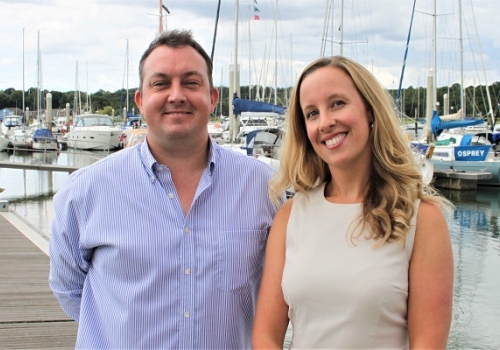
When it comes to hiring superyacht crew, it's important to find candidates who will not only perform their job to a high standard, but who will also fit well with the rest of the crew, whilst living and working together in close quarters.
There are several key elements to consider in the recruitment process, but one of the most important is the interview. Asking the right questions can help you asses their skills and experience as well as giving you a better understanding of their interpersonal skills and problem-solving abilities. It allows you to get a feel for whether or not a candidate is qualified, but also if they’re someone who will complement your exiting team and someone who other crew members would enjoy working with.
It’s not always an easy task but the team at wilsonhalligan crew recruitment have shared some examples of top interview questions that you could use to learn more about the applicant…
When interviewing try to follow the 80/20 rule where you, as the interviewer, do 80 per cent of the listening and 20 per cent of the talking. Start with some general questions to establish the candidate’s interest in the position and their previous experience. Ask them to tell you why they think they would be a good fit for the role and what they could contribute. Applicants should also be given time to ask you any questions that they may have. Remember that their questions can also help you assess their interest in the role and if they will be a good fit for your team
1. What do you know about the yacht and the position on offer?
A great opening question to determine whether a candidate is serious about the job on offer or has just applied to any vacant position. Of course it’s not always possible for a candidate to know much about a yacht due to confidentiality, but they should have taken time to learn as much as they can and be fully aware of the role they have applied for. This question also offers a good opportunity for you to then explain the position in a little more detail.
2. Can you tell me about your responsibilities in your previous role?
This question can help you evaluate the candidate’s communication skills and give you a more in-depth insight into their background, skills and experience. You can go on to ask them how they would handle certain situations or challenges relevant to the yacht or position you are recruiting for.
3. What skills and experience can you bring to this position?
Have they considered what you are looking for and how they can benefit the yacht and crew? If they are new to the yachting industry, have they considered how their previous skills and experiences could be transferred to yachts? Are they able to think critically about their abilities and experience within the role?
4. Why are you looking for a new position?
Yachting contracts are often short or terminated due to a change in circumstances with the yacht or owner, however reasons such as lack of career development or problems with management or crew can mean they are unhappy in their current role. Does the job you have available offer an alternative to these issues? Will they be happier on your yacht?
5. How would your fellow crew members describe you?
A key question in assessing how they might work with other members of the crew. Be on the lookout for candidates that will compliment your existing team both professionally and socially.
6. Can you tell me a time you had a disagreement on board and how you handled it?
You can tailor this question to be more specific to the position on offer and the answer will give you a sense of their ability to handle conflict and resolve issues. Did they handle the situation well? Did they remain professional? How do they speak about the other individuals involved?
7. Can you describe how you handle quick turnarounds?
A busy yachting season consists of long hours and little downtime. Are you looking for someone who can work quickly and under pressure? Are they able to overcome challenges calmly and rationally? Can they work independently and remain well organised? Think about tailoring this question to the specific role on offer.
8. What’s the most interesting or enjoyable job you have had?
Leaning what the candidate enjoyed most about a previous job can help you understand their interests and motivation, what they are hoping to gain from this new position and what will offer them job satisfaction.
9. Where do you see yourself in five years?
People join the yachting industry for many reasons, for some it is long term career whilst for others it is a short-term experience to travel and earn money. Establishing their future goals can help you asses whether they are suited to the role. For example a candidate who is interested in career development is more likely to offer longevity if there is opportunity for further training and a chance to step up to a more senior role in time.
10. What’s one fact we should know about you that is not on your CV?
A great open-ended question which can lead to conversations about a candidate’s background, their hobbies or interests, and can give you a sense of who they are as a person and how they might fit in with the rest of the crew.
The team at wilsonhalligan Recruitment are always on had to help with your recruitment needs. If you would like any advice or guidance on sourcing suitable candidates, the interview process or reference checking please do not hesitate to get in touch.
For more examples of Interview Questions read: Top 10 Interview Questions for Yacht Crew & How to Answer Them
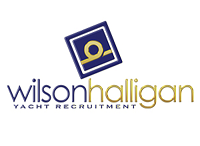
Post your comment
You cannot post comments until you have logged in.
Comment by: Mellisa Altenburger - 12 Jan 2022, 18:35 (2 years ago)
Very helpful article, thank you!
No one has commented on this page yet.
RSS feed for comments on this page | RSS feed for all comments
Search articles with keywords
How to succeed in a yacht job interview

With thanks to YPI Crew
As with many professions, it can be difficult to get a foot in the door to start a career in the yachting industry, with many first-time yachties finding the interview process a little different to navigate than that of the corporate world they are used to.

With the marine recruitment industry currently being deemed a skill-short market, there's never been a better time to train up and take the risk. Yachting Pages spoke to Laurence Lewis, director of YPI Crew for her top tips for securing and succeeding in yacht job interviews, and common mistakes that many crew may make when trying to land that elusive yacht job.
Securing a yacht job interview
As in the corporate world, skilled candidates are always at a premium in the yachting industry with there often being serious competition for newcomers to face. However, there will also always be entry-level yacht jobs available. Discover the different crew role and responsibilities here.
Whether you’re a newbie or experienced yachtie, it will be helpful for you to find and hold on to a good yacht crew agent to secure that perfect yacht job. With the right contacts, a crew or marine recruitment agent will be able to get your CV into the hands of the right people at the right time, and to advise on the ways in which to succeed at your yacht job interview. Learn to write a great yacht crew CVs here.
It’s important to understand that, even once you have secured the opportunity for interview, you are not fooled by the invitation for a ‘chat’ with the interviewer: Yacht job interviews may often be a lot less formal than those in the corporate world, but they are still interviews nonetheless.
Laurence explained, “An interview is never really a ‘chat’. If you are invited to go for a chat, you may set yourself up for failure. An interview is really a screening process, whereby a yacht owner, captain or head of department will evaluate a potential crew member: They have already decided that your CV is interesting, and now they want to know more about you and decide whether you are the best person for the job.”
But, it’s not all doom and gloom; whether formal or informal, interviews are a chance for potential crew to get a feel for the job, as much as it is a chance for the owner, captain or department manager to get to know the candidate.
Laurence continued, “In an interview, both sides are screening each other. In most cases, there is a clear power imbalance inherent in the interview, but it’s not as one-sided as you might think: The crew or captain needs a job, and the owner or captain needs someone to do the job. So, whilst the interview is not a chat, it will become a conversation between two people who each have something that the other wants. The key is therefore for the candidate to come across as competent, confident and friendly.”
Read on for tips on navigating the marine recruitment minefield to find a yacht job.
Interviewing for your first yacht job
An interview will typically set out to distinguish a candidate’s strengths, motivation and cultural fit on-board. Questions (and therefore answers) should therefore be indirectly formulated to prove the following points:
- Can the candidate do the job?
- Will they enjoy doing the job?
- Will they be easy to work and live with?
So, how do you prove that you have potential as a candidate? Laurence said, “By definition, as a junior stewardess or junior deckhand, you will have little or no experience in the yachting industry. But don’t see this as a weak point – we all have to start somewhere.

“As you cannot back up your application with a lot of experience, and even if you have worked in hospitality before, it is unlikely that you would have knowledge of such a luxurious environment. You need to capitalise on other strengths and attributes: How you present yourself, how you communicate and relate to other people, and how you show flexibility and willingness to learn.”
You should usually:
- Wear a clean, crisp white polo shirt or t-shirt with beige or navy trousers or skirt
- Wear your hair up and neat and tidy
- Look natural, leaving heavy make up at home
- Have clean, shaped nails and be well groomed
- Convey resilience, commitment and team spirit
- Demonstrate commitment to the job, so it is clear that you will not quit halfway through the season
Common interview questions for a yacht job
Tell me about yourself.
Laurence explained, “This is a common interview question, and is not just an ice-breaker, but your chance to really shine. If answered well, it will unquestionably increase your chances of obtaining a job offer.
“A lot is at stake here, and like most things in life it is about preparation. You will need to provide a coherent answer that has been prepared well in advance of the interview. Practice at home or with a friend and keep your answer straight and to-the-point. Two to three minutes is a good starting point.”
- Don’t simply ask what they would like to know, make sure to have an answer prepared
- Don’t talk about your first job in yachting, 20 years ago
- Don’t speak negatively of your last yacht’s captain, crew or responsibilities
- Do focus on past accomplishments and provide facts and figures to back this up
The interviewer (likely to be the captain of the yacht) is really looking to find out what is in it for him/her should they hire you; what you will bring to the job and that you will be a good fit to the current yacht and its crew/activities.
Why do you want to work on a yacht?
Do not say that you want to work on a yacht because you want to travel, or to rub shoulders with the rich and famous. Either of these answers focus on you and your needs rather than that of the yacht. Remember, you are there to highlight what it is that you can help the captain with.

Instead, talk about what you can offer to the yacht, how your previous experience in a hotel, restaurant or resort has contributed to you wanting to take a new job in hospitality, and how this experience will help you to complete the role.
Why should we hire you?
Laurence said, “Often asked at the end of the interview, this question is critical. It is often make or break time. Here, the interviewer is giving you the opportunity to sell yourself one last time, so that you can convince him that you are right for the job.
“This is particularly great if the interviewer has already mentally dismissed you as a viable candidate, giving him chance to consider you one last time. If you answer the question well, it can put you back in the running for the job.”
Make sure to:
- Convey that you are a solution to a recruitment problem
- That your skills set, set you apart from the crowd
- That you meet the employer’s needs
Your crew agent may be able to help you with information as to what the interviewer is really looking for.
Do you have any questions?
Think about appropriate questions for the yacht job in hand. Laurence advised that you do not ask about the salary as soon as you arrive at the interview. Instead ask about the yacht, the crew, your duties and the itinerary.
Five key tips to succeed in a yacht job interview
- Turn your mobile phone off before the interview
- Show that you are eager to learn
- Remember to thank the captain for his or her time
- If you are keen to take the job, say so and communicate that you will represent the yacht well
- Be ready to move quickly, yacht jobs are usually short-notice or sometimes same-day recruitment requests
Moving into your next yacht job
Of course, once you make it into the industry, it’s great if you can quickly progress up the hierarchy on board, moving into new and exciting roles with a little more reward and responsibility.
As an experienced yachtie, you may find that you’re skills are in great demand in the industry, but nevertheless, the same rules apply to you as to first-time candidates - and a crew agent with industry experience is a helpful aid in any yacht job search. Remember to keep your training skills up to date, in order to progress.
Read on to find popular yacht crew hiring ports in which to start a yacht job search , or find a yacht crew agent on Yachting Pages.
Tried & Tested

A jacket completes any crew member's uniform so it's an important garment to get right. In this Tried & Tested, Sea Design pits eight popular jackets against one another to determine which one is best for superyacht crew in 2023.
iAQUA creates high-performance, technologically advanced underwater scooters. In this Tried & Tested, a team of experienced testers have rated and reviewed the AquaDart Pro and AquaDart Nano series to reveal the stand-out iAQUA sea scooter.
In our 2022 Tried & Tested, yacht toy specialist EAMS and a group of captains and crew review a selection of the very best luxury water toys on the market. Find out which toy was crowned the winner...
SeaYou will be returning to Marina Genova for its 4th edition on Thursday 18th April and Friday 19th April, 2024....

MB92 Group and Pinmar, part of GYG Ltd, has partnered to launch a sustainability initiative in collaboration with the Ba...

Popular Articles
Finished reading now find your perfect supplier..
Search our industry-leading directory for over 20,000 superyacht suppliers, providers and marinas.

25 Yacht Captain Interview Questions and Answers
Learn what skills and qualities interviewers are looking for from a yacht captain, what questions you can expect, and how you should go about answering them.

A yacht captain is responsible for the safe and efficient operation of a vessel, its crew, and its passengers. Captains must have a working knowledge of both the vessel and the local waters in which they are sailing. They must also be able to handle emergencies and navigate through dangerous waters.
If you’re looking to become a yacht captain, you’ll need to be able to answer a range of questions during your job interview. In this guide, we’ll provide you with a list of questions and answers that you can use to help you prepare for your interview.
- Are you comfortable working with a team of people on a regular basis?
- What are some of the most important skills a yacht captain can have?
- How would you handle a situation where a crew member was not following company policies or procedures?
- What is your experience with marine navigation systems and other technologies used on yachts?
- Provide an example of a time when you had to deal with a mechanical issue on board a yacht and resolve it successfully.
- If hired, what would be your primary areas of focus as a yacht captain?
- What would you do if you saw a storm approaching while you were out on the water?
- How well do you communicate verbally and in writing?
- Do you have a valid license to operate a yacht?
- When is it appropriate to call for emergency assistance?
- We want to maintain a positive company culture. How would you encourage teamwork among the crew?
- Describe your experience with first aid and other emergency procedures.
- What makes you stand out from other yacht captains?
- Which types of boats have you worked on in the past?
- What do you think is the most important attribute for a successful yacht captain?
- How often do you perform routine maintenance on the yacht?
- There is a conflict between two crew members. How do you handle it?
- Describe a situation where you had to make a difficult decision while on board a yacht.
- How do you stay up-to-date with the latest safety regulations and procedures?
- What strategies have you used in the past to motivate crew members?
- Do you have experience dealing with customs, immigration, and other port authorities?
- What is your approach to customer service?
- Suppose a passenger asks for something that is outside of your job scope. How would you handle it?
- Are you familiar with the maritime laws applicable to yachts?
- Describe a time when you successfully managed a challenging situation out at sea.
1. Are you comfortable working with a team of people on a regular basis?
Working as a yacht captain often requires you to work with other crew members. Employers ask this question to make sure you’re comfortable working in a team environment and that you can communicate effectively with your coworkers. In your answer, explain how you enjoy collaborating with others and what makes teamwork so enjoyable for you.
Example: “Absolutely. I have extensive experience working with teams on yachts and understand the importance of collaboration to ensure a successful voyage. I am an excellent communicator and enjoy leading by example, setting high standards for myself and others. I take pride in my ability to motivate and inspire those around me while still maintaining a positive attitude. In addition, I’m comfortable delegating tasks and managing multiple people at once. I believe that it is important to create an atmosphere of trust and respect among team members so that everyone can work together effectively.”
2. What are some of the most important skills a yacht captain can have?
This question can help the interviewer determine if you have the skills and experience necessary to be successful in this role. When answering, it can be helpful to mention a few of your strongest skills and how they relate to yacht captain duties.
Example: “The most important skills a yacht captain can have are strong leadership and communication abilities. As the leader of the crew, it is essential to be able to effectively communicate instructions and expectations while also motivating and inspiring your team. It is also important to be organized and detail-oriented in order to ensure all safety protocols are followed and that the vessel is properly maintained.
In addition, having an understanding of navigation and marine operations is critical for any yacht captain. This includes knowledge of weather patterns, tides, currents, and other environmental factors that could affect the journey. Finally, having experience with different types of vessels and engines will help you troubleshoot any issues that may arise during the voyage.”
3. How would you handle a situation where a crew member was not following company policies or procedures?
Interviewers ask this question to see how you handle conflict and discipline. In your answer, explain what steps you would take to resolve the situation and ensure that it does not happen again.
Example: “If a crew member was not following company policies or procedures, my first step would be to have an open and honest conversation with them. I believe in creating a positive work environment where everyone feels comfortable expressing their opinions and concerns. During this conversation, I would explain the importance of following company policies and procedures, as well as how it affects the team as a whole.
I would also make sure that the crew member understands what is expected of them and provide any additional resources they may need to help them meet those expectations. Finally, if necessary, I would take disciplinary action such as verbal warnings or suspension depending on the severity of the situation. My goal is always to ensure that all crew members are held accountable for their actions while still being treated fairly and respectfully.”
4. What is your experience with marine navigation systems and other technologies used on yachts?
The interviewer may ask you this question to learn about your experience with the technology used on yachts. Use your answer to highlight your knowledge of marine navigation systems and other technologies, such as radar, GPS and sonar.
Example: “I have extensive experience with marine navigation systems and other technologies used on yachts. I am well-versed in the use of GPS, radar, AIS, autopilot, and chartplotters. I also understand how to operate and maintain all types of communication equipment such as VHF radios, satellite phones, and SSB radios. In addition, I am familiar with the operation of various safety systems including EPIRBs, life rafts, fire extinguishers, and flares.
Moreover, I have a strong understanding of the latest trends in yacht technology and can quickly adapt to new systems or upgrades. I am comfortable troubleshooting problems when they arise and take pride in keeping my vessels up to date with the most current software and hardware. Finally, I always strive to stay ahead of the curve by attending seminars and workshops related to marine navigation and technology.”
5. Provide an example of a time when you had to deal with a mechanical issue on board a yacht and resolve it successfully.
The interviewer may ask you this question to learn more about your mechanical skills and how you use them on board a yacht. Use examples from your experience as a captain that show your ability to troubleshoot problems, communicate with the crew and resolve issues quickly.
Example: “I have extensive experience as a Yacht Captain, and I am confident that I can handle any mechanical issue on board. For example, last summer I was captaining a yacht when the engine began to malfunction. After assessing the situation, I determined that it was an electrical problem caused by a faulty wiring connection.
I quickly identified the source of the issue and worked with my crew to resolve it. We replaced the faulty wiring connection and tested the engine to ensure that everything was working properly. The repair was successful and we were able to continue our voyage without any further issues. This experience demonstrated my ability to identify and solve complex mechanical problems in a timely manner.”
6. If hired, what would be your primary areas of focus as a yacht captain?
This question allows you to highlight your strengths and skills as a yacht captain. It also gives the interviewer insight into what you consider important in this role. When answering, think about which aspects of being a yacht captain are most interesting or challenging for you. Consider mentioning some specific goals that you would like to achieve if hired.
Example: “If hired as a Yacht Captain, my primary areas of focus would be to ensure the safety and security of all passengers and crew on board. I have extensive experience in navigating vessels through various waters and weather conditions, so I am confident that I can handle any situation that may arise.
I also understand the importance of providing excellent customer service, and I strive to make sure each passenger has an enjoyable and memorable experience aboard the yacht. I will work closely with the crew to provide top-notch hospitality services and ensure that all guests are comfortable and taken care of throughout their journey.
In addition, I will take responsibility for maintaining the vessel’s condition and ensuring it is always running efficiently and safely. This includes performing regular maintenance checks, monitoring fuel levels, and managing inventory. Finally, I will stay up to date on all applicable laws and regulations related to yachting, to ensure we remain compliant at all times.”
7. What would you do if you saw a storm approaching while you were out on the water?
This question can help an interviewer determine how you handle stressful situations. In your answer, explain what steps you would take to ensure the safety of everyone on board and minimize damage to the yacht.
Example: “If I saw a storm approaching while out on the water, my first priority would be to ensure the safety of everyone onboard. I would immediately assess the situation and determine the best course of action based on the severity of the storm, the size of the vessel, and the capabilities of the crew. If necessary, I would take steps to secure any loose items that could become dangerous in high winds or heavy seas.
I would also communicate with other vessels in the area to coordinate our movements and make sure we are all taking the same precautions. Depending on the circumstances, I may choose to head for shore or seek shelter in a nearby harbor. Finally, I would monitor the weather closely and adjust our route accordingly to avoid the worst of the storm.”
8. How well do you communicate verbally and in writing?
The interviewer may ask this question to assess your communication skills. They want to know how well you can explain things verbally and in writing, as well as how much you enjoy communicating with others. Use examples from past experiences where you had to communicate clearly and effectively.
Example: “I have excellent verbal and written communication skills. I am confident in my ability to effectively communicate with a wide variety of people, both on board the yacht and off. On board, I ensure that all crew members are aware of their responsibilities and expectations. I also make sure they understand any changes or updates to our itinerary.
Off the boat, I stay in constant contact with clients and colleagues. I provide detailed reports about the progress of the voyage, as well as any issues we may encounter along the way. My written communication is clear and concise, so everyone can easily understand what I’m saying.”
9. Do you have a valid license to operate a yacht?
Employers may ask this question to make sure you have the proper credentials for operating a yacht. They want to know that you can legally operate their vessel and keep it safe at all times. In your answer, let them know what type of license you have and when it expires. If you don’t have a license, explain why not.
Example: “Yes, I do have a valid license to operate a yacht. I am certified by the United States Coast Guard and have been working as a Yacht Captain for over 10 years now. During my time in this role, I have gained extensive experience navigating vessels of all sizes in both inland and coastal waters. I also have knowledge of safety regulations, navigation laws, and marine equipment maintenance.
I take pride in ensuring that every vessel I captain is operated safely and efficiently. I always adhere to the highest standards of professionalism and strive to provide an enjoyable experience for passengers. My attention to detail and commitment to customer service has earned me a reputation as a reliable and knowledgeable Yacht Captain.”
10. When is it appropriate to call for emergency assistance?
This question can help the interviewer determine how you handle stressful situations and whether you have experience with calling for emergency assistance. Use your answer to highlight your ability to make quick decisions under pressure, communicate clearly and remain calm in challenging situations.
Example: “When it comes to emergency assistance, I believe that the safety of the passengers and crew should always be the top priority. As a Yacht Captain, I understand when it is appropriate to call for help in an emergency situation.
If there is any indication of danger or distress such as a medical emergency, mechanical failure, or hazardous weather conditions, then I would immediately contact the Coast Guard or other local authorities for assistance. In addition, if I have reason to suspect that someone on board may be engaging in illegal activities, I will also contact the proper authorities.
I am familiar with all of the protocols for calling for help in an emergency situation and I take my responsibility to ensure the safety of everyone onboard very seriously.”
11. We want to maintain a positive company culture. How would you encourage teamwork among the crew?
The interviewer may ask this question to learn more about your leadership style and how you would interact with the crew. Your answer should include a specific example of how you encouraged teamwork in the past, along with an explanation of what made that situation successful.
Example: “I understand the importance of a positive company culture and how it can help create an enjoyable work environment. As a Yacht Captain, I would encourage teamwork among the crew by setting clear expectations for each individual role on board. This will ensure that everyone is aware of their responsibilities and what is expected of them.
Additionally, I believe in fostering open communication between the crew members. By creating an atmosphere where everyone feels comfortable to share ideas and ask questions, we can foster collaboration and cooperation. Finally, I think it’s important to recognize and reward team efforts when they are successful. This will motivate the crew to continue working together towards common goals.”
12. Describe your experience with first aid and other emergency procedures.
The interviewer may ask this question to learn more about your experience with first aid and other emergency procedures. This can help them determine if you have the skills necessary to keep their crew safe while on board a yacht. In your answer, try to describe any specific training or certifications you have in first aid and safety procedures.
Example: “I have extensive experience with first aid and emergency procedures. I am a certified Emergency Medical Technician (EMT) and have been trained in CPR, AED use, and basic life support. In addition to my EMT certification, I also hold a US Coast Guard Captain’s license which requires me to be knowledgeable about safety protocols and emergency preparedness.
Throughout my career as a Yacht Captain, I have had the opportunity to put my training into practice on multiple occasions. Whether it was responding to medical emergencies or dealing with mechanical issues, I have always been able to remain calm under pressure and take the necessary steps to ensure everyone’s safety. I am confident that my knowledge and experience will make me an asset to your team.”
13. What makes you stand out from other yacht captains?
Employers ask this question to learn more about your unique skills and abilities. They want to know what makes you a valuable candidate for their company. When answering this question, think of two or three things that make you stand out from other yacht captains. These can be specific experiences, certifications or personal traits.
Example: “I believe my experience and qualifications make me stand out from other yacht captains. I have over 10 years of experience in the industry, including 5 years as a Yacht Captain. During this time, I have developed an extensive knowledge of maritime regulations, navigation systems, and safety protocols. I am also certified by the United States Coast Guard for both recreational and commercial vessels.
In addition to my technical skills, I bring strong leadership qualities to the table. I am able to effectively manage crew members, delegate tasks, and ensure that all safety procedures are followed. My communication skills are excellent, allowing me to easily interact with clients and guests. Finally, I take great pride in providing exceptional customer service, ensuring that each client has a safe and enjoyable experience on board.”
14. Which types of boats have you worked on in the past?
This question can help the interviewer determine if you have experience working on a yacht. They may also want to know what types of boats you’ve worked on and how much experience you have with each type. Use your answer to highlight any previous experience working on yachts, but also include information about other types of boats that you’re familiar with.
Example: “I have extensive experience working on a variety of boats, ranging from smaller pleasure craft to large luxury yachts. I have been a Yacht Captain for the past five years and have operated vessels up to 200 feet in length. During this time, I have gained experience with both sailboats and motorboats, as well as various types of propulsion systems.
In addition to my experience operating larger vessels, I am also familiar with small-scale operations such as dinghies and jet skis. I understand the importance of safety when it comes to these types of vessels, and I make sure that all passengers are properly briefed before embarking on any journey.”
15. What do you think is the most important attribute for a successful yacht captain?
This question is your opportunity to show the interviewer that you have what it takes to be a successful yacht captain. You can answer this question by describing an important attribute and how you use it in your daily work.
Example: “I believe the most important attribute for a successful yacht captain is strong leadership. A good leader will be able to effectively manage their crew, delegate tasks, and ensure that all safety protocols are followed. They must also have excellent communication skills in order to clearly communicate orders and expectations to their team. Finally, they should have an extensive knowledge of maritime laws and regulations, as well as experience navigating different types of waters.
In addition to these qualities, I also think it’s important for a yacht captain to be organized and detail-oriented. This ensures that all necessary paperwork is completed correctly and on time, and that any potential issues are addressed quickly and efficiently. Finally, having a positive attitude and being able to stay calm under pressure can go a long way towards ensuring a successful voyage.”
16. How often do you perform routine maintenance on the yacht?
The interviewer may ask this question to learn more about your experience with maintenance and repairs. Use examples from past experiences to show the interviewer that you can perform routine maintenance on a yacht.
Example: “As a Yacht Captain, I understand the importance of routine maintenance and take it very seriously. I always make sure to inspect all areas of the yacht on a regular basis and perform any necessary maintenance tasks as soon as possible. This includes checking for wear and tear on the hull and deck, inspecting the engine and other machinery, and ensuring that all safety equipment is in good working order. In addition, I also check the fuel levels and ensure that all navigation systems are functioning properly. Finally, I conduct a thorough inspection of the interior and exterior of the vessel at least once every two weeks. By doing so, I can guarantee that the yacht is running safely and efficiently.”
17. There is a conflict between two crew members. How do you handle it?
This question can help an interviewer determine how you handle interpersonal conflicts. It also shows them your conflict resolution skills and ability to work with others. In your answer, try to show that you are a team player who is willing to compromise in order to resolve the conflict.
Example: “When it comes to resolving conflicts between crew members, I believe in taking a proactive approach. First, I would try to understand the root of the conflict by speaking with both parties individually and getting their perspectives on the situation. This allows me to get an unbiased view of what is going on and identify any underlying issues that may be causing the conflict.
Once I have identified the cause of the conflict, I will work with the crew members to come up with a resolution. This could involve mediating a conversation between them or providing guidance on how they can better communicate with each other. My goal is always to ensure that all crew members feel respected and heard throughout the process.
I also strive to create a positive working environment for my crew so that conflicts are less likely to arise in the future. This includes setting clear expectations from the start and making sure everyone understands their roles and responsibilities. By creating an atmosphere of respect and understanding, I can help prevent similar conflicts from occurring again.”
18. Describe a situation where you had to make a difficult decision while on board a yacht.
This question can help interviewers understand how you make decisions and the thought process behind them. Use this opportunity to showcase your problem-solving skills, leadership qualities and ability to think critically under pressure.
Example: “I recently had to make a difficult decision while on board a yacht. We were in the middle of a long voyage and encountered an unexpected storm. The weather was deteriorating quickly, and I had to decide whether to continue sailing or turn back for safety. After assessing the situation, I decided that it would be best to turn around and head back to port.
The crew was initially hesitant about my decision, but after explaining the risks associated with continuing our journey, they understood why it was necessary to turn back. I made sure to keep everyone informed throughout the process and provided them with clear instructions on how to proceed. In the end, we all arrived safely at port and avoided any potential danger. This experience taught me the importance of making quick decisions when faced with challenging situations.”
19. How do you stay up-to-date with the latest safety regulations and procedures?
The interviewer may ask this question to see if you are committed to staying up-to-date with the latest industry regulations and procedures. Your answer should show that you have a passion for learning new things, especially when it comes to safety.
Example: “Staying up-to-date with the latest safety regulations and procedures is a top priority for me as a Yacht Captain. I make sure to stay informed on all of the current laws, rules, and regulations that apply to yachting in my area. I regularly attend seminars and workshops hosted by local yacht clubs or organizations to learn about any new developments or changes in the industry.
I also subscribe to several newsletters and magazines related to maritime safety so I can stay abreast of the latest news and trends. Finally, I am an active member of various online forums and discussion boards where experienced captains share their knowledge and experiences. This allows me to gain insight into best practices and keep up with the most recent updates in the field.”
20. What strategies have you used in the past to motivate crew members?
Motivation is an important skill for yacht captains to have. Employers ask this question to learn more about your leadership skills and how you can motivate others on the job. In your answer, explain a few strategies that you’ve used in the past to help crew members stay motivated while working.
Example: “I believe that the most effective way to motivate crew members is through positive reinforcement. I have found that when people are praised for their hard work, they become more motivated and willing to go above and beyond what is expected of them.
In my previous positions as a Yacht Captain, I have implemented various strategies to ensure that each crew member was recognized for their efforts. For example, I would hold weekly meetings where I would recognize individual crew members who had gone above and beyond in their duties or achieved something noteworthy. This not only helped to boost morale but also encouraged others to strive for excellence.
Additionally, I have used incentives such as bonuses or extra time off to reward those who exceeded expectations. These rewards were based on performance and provided an additional incentive for crew members to stay motivated and continue working hard.”
21. Do you have experience dealing with customs, immigration, and other port authorities?
The interviewer may ask you this question to determine how comfortable you are with the bureaucratic processes involved in international travel. Use your answer to highlight your ability to navigate these systems and complete necessary paperwork on time.
Example: “Yes, I have extensive experience dealing with customs, immigration, and other port authorities. During my previous positions as a Yacht Captain, I had the opportunity to work in various ports around the world. This has given me the chance to build relationships with local port officials and understand their procedures for entering and exiting different countries.
I am also familiar with all relevant regulations regarding international travel, such as visas, permits, taxes, and fees. As part of my duties, I was responsible for ensuring that all paperwork was completed correctly and submitted on time. I take pride in being able to handle these tasks efficiently and effectively.”
22. What is your approach to customer service?
Customer service is an important part of being a yacht captain. You need to be able to communicate with customers and ensure they have a positive experience on the boat. Employers ask this question to make sure you understand how important customer service is in your role. In your answer, explain that you value treating customers well. Explain that you would always try to resolve any issues or concerns they had as quickly as possible.
Example: “My approach to customer service is centered around providing an exceptional experience for my guests. I strive to create a safe and enjoyable atmosphere on board the yacht, while also ensuring that all of their needs are met. My goal is to make sure that each guest feels comfortable and secure during their stay.
I have extensive knowledge of maritime safety regulations and procedures, which allows me to provide a safe environment for our passengers. I also take pride in creating a memorable experience by being attentive to the individual needs of each passenger. This includes making sure they have access to amenities such as food, drinks, entertainment, and activities.
Additionally, I am always willing to go above and beyond to ensure that my guests’ expectations are exceeded. Whether it be arranging special excursions or suggesting unique experiences, I will do whatever it takes to make sure that everyone has a great time. Finally, I understand the importance of communication and will always keep my guests informed about any changes or updates throughout their journey.”
23. Suppose a passenger asks for something that is outside of your job scope. How would you handle it?
This question can help the interviewer determine how you handle difficult situations and whether you are able to remain calm in challenging circumstances. In your answer, try to demonstrate that you have good conflict resolution skills and a willingness to help others.
Example: “If a passenger asks me for something that is outside of my job scope, I would first take the time to understand their request and why it is important to them. Then, I would explain what my role as Yacht Captain entails and how I can help them within those parameters. If they still need assistance beyond what I am able to provide, I would be happy to refer them to someone who could better assist them with their needs. My goal is always to ensure that passengers have an enjoyable experience on board, so if there is anything else I can do to make sure that happens, I’m more than willing to try.”
24. Are you familiar with the maritime laws applicable to yachts?
The interviewer may ask this question to assess your knowledge of maritime laws and regulations. This is because yacht captains are responsible for ensuring their crew members follow all applicable rules, which can include safety procedures and environmental regulations. In your answer, try to show that you understand the importance of following these laws and how they affect a yacht’s operations.
Example: “Yes, I am very familiar with the maritime laws applicable to yachts. As a Yacht Captain for the past five years, I have kept up-to-date on all regulations and safety protocols related to operating vessels in both domestic and international waters. I understand the importance of following these laws and take pride in ensuring that my crew and passengers are safe at all times.
I also stay informed about the latest technological advances in navigation systems, communication equipment, and other onboard technologies. This knowledge helps me ensure that our yacht is running safely and efficiently while out at sea. Finally, I am well versed in emergency procedures, including distress signals, evacuation plans, and first aid measures. My experience has taught me how to handle any situation that may arise while we’re out on the water.”
25. Describe a time when you successfully managed a challenging situation out at sea.
This question can help the interviewer determine how you handle stressful situations and whether you have experience working in a high-pressure environment. Use your answer to highlight your problem-solving skills, ability to work under pressure and leadership qualities.
Example: “I was once out at sea on a yacht with a group of passengers who wanted to explore some remote islands. The weather had been unpredictable and the seas were choppy, making navigation difficult. I had to ensure that we stayed safe while still providing an enjoyable experience for our guests.
To manage this situation, I took extra precautions when navigating around the islands. I made sure to stay in deeper waters away from any shallow areas and used my navigational skills to plot a course that avoided any potential hazards. I also kept a close eye on the weather conditions and adjusted our route accordingly. Finally, I communicated regularly with the passengers to keep them informed about our progress and reassured them that their safety was my top priority.
Thanks to my careful planning and communication, we were able to reach our destination safely and without incident. Everyone onboard was very pleased with the outcome and it was a great example of how effective leadership can help navigate challenging situations.”
25 Investment Consultant Interview Questions and Answers
25 instrument technician interview questions and answers, you may also be interested in..., 20 android debug bridge interview questions and answers, 20 california department of public health interview questions and answers, 17 personal health coach interview questions and answers, 25 boiler operator interview questions and answers.
Essential Guides
Ocean Mapping
New to Yachting
- May 10, 2021
Yacht interviews can be stressful, but they are also your opportunity to shine. So many yacht crew looking for work never get to this point so make sure you use this chance to its full potential. To help with that, our experienced recruiters are bringing you some interview tips to use and remember.
1. Make sure to know the name of the interviewer/interviewers and call them by their respective name when you introduce yourself. When you’re looking for work, make a point of answering your phone in a professional manner at all times. “Hello, Marjorie speaking”. It’s such a small detail, but it will instantly score you some points as you’ll come across as switched on. Too many people answer their phones with a dreary and low-toned “hello” which is really off-putting to an interviewer.
MARJORIE BAILLET - Engineering Recruiter

2. These days most interviews take place by phone or video calls so, just like you would have done in 2019, make sure you’re on time, or even better arrive early, log in a few minutes before the scheduled time. Ensure your backdrop is suitable, your sound and video are working correctly.
FIONA MURRAY - Head of Deckhand and Bosun Department

3. Be mindful of your body language whether you are interviewing in person or via video call. You can say all the right things at an interview but you also need to have coherent body language to go with it. I have seen top captains nervously playing with a pen or wiggling on a chair in the middle of an interview instead of taking a moment to compose and focus on the conversation.
ULRICA LINDSTROM - Head of Deck Department

4. Take some time before the interview to think about the position that you are interviewing for and prepare a few questions you would like to ask. This will help the interview flow nicely and it will show that you are interested in the position. Here are a few examples: “What’s the best thing about working on this yacht?”, “Are there any specific aspects of the job that I should be aware of?“, “ Why has the last person left the job? “, “What is the next step after this call? “.
ANNA HORAK - Engineering Recruiter

5. Listen to your recruiter 😊. Recruiters are specialists who know their market extremely well and know what it takes to get to the interview stage and then to the job offer stage. We champion candidates and when we share advice on topics such as CVs or food photos, it’s not to be a pain, it’s because we want to secure you your dream job! We know the process and we enjoy guiding you to success.
HELEN PAPAMICHAEL - Head of Interior Department and Chef Recruiter

6. Get prepared! Read over your CV beforehand and highlight in pen or pencil the things you are proud of and the things you think are relevant for the position, so that you can talk about these when asked, without panicking. There is nothing worse than thinking afterwards ‘Aaah! I should have said that!’.
LOUISE OVEREND - Interior recruitment consultant specialising in Junior Stew, Nurses and Spa Therapists recruitment

7. You can hear a smile – have you ever thought about that? When you smile talking on the phone, you sound warm and friendly, not flat. As telephone interviews have become the norm, this advice is more pertinent than ever. Also, when you smile, on Zoom, for instance, it is your whole attitude that will shift – it’s unlikely you’ll be slumped on a chair when you’re smiling. You’ll automatically sit straighter and be more engaging with your interviewer.
ALEXANDRA O'CONNELL - Deckhands and Bosuns Department

8. Remember this is your opportunity to shine. Tell the interviewer what you can bring to the table, what your key attributes are and why they should hire you above the other shortlisted candidates. Top tip – do not ask about the salary! Leave that to the discretion of the interviewer. If you have made a good impression, they will then move on to discuss terms later.
JACQUI YOUNG - Head of Engineering Department

9. Look your interviewer in the eyes while speaking to them. It is very important to maintain eye contact with the person facing you. If there is more than one interviewer make sure you give them equal attention, even if one is not interacting.
ANNABELLE HUVELIN - Interior Recruiter specialising in Chief Stew and Purser recruitment

10. No one is amazing at everything and it’s refreshing to have an honest chat, so don’t be afraid to speak about what you’re not good at. “Do you have any reservations about my application”? This is an old-time favourite and will be an absolute winner – by asking this question you demonstrate that you are interested and keen on the job and also that you are confident in yourself and not afraid of rejection. It allows you to address the doubts that the interviewer has about you and it’s your chance to put their fears to rest. Its a powerful question and one of my favourite “Top Tips”.
LISA FROST - Captain’s Department

11. Keep positive and listen with attention to the questions, take your time to respond with clear motivations on why you are the best person for that particular position/yacht.
CHLOE COLLET - Captain’s Department

Are you ready to find your new dream job onboard a yacht?
Become a member of YPI CREW through a free registration and let us connect you with the next step in your career.
Each of our recruiters is specialised in recruitment for a particular department and they will do their best to get you an interview onboard a yacht. They will also advise qualified crew how to best present their CV and prepare for a yacht job interview.
Are you looking for yacht crew for your yacht?
Get in touch with us so our recruiters can connect you with suitable, available and interested candidates, each of which will be checked, certified, pre-interviewed and ensured to be a perfect fit to your existing crew.
You can get in touch with us today by clicking here .
Most read articles

Tips & Tricks
How many crew members are needed on a yacht?

How to Find A Caribbean Yacht Job

Yacht Job Offers
Open yacht crew jobs in March 2023

How to Become A Yacht Purser: Interview with Purser Trainer Angela Wallace

YACHT CREW GUIDES
IS YACHTING THE RIGHT CHOICE FOR ME?
Essential yacht guides

Mandatory certificates

What you need to know about B1/B2 visa

How to prepare for a yacht interview?
Read more latest news

YPI CREW Will be Attending the Superyacht Technology Network Conference in Barcelona

Is a career in the yachting industry a good fit for me?

Webinar Friday, 15th March: How to Start Your Yachting Career as a Superyacht Stew?

11 Yacht Interview Tips from Professional Recruiters
TIPS & TRICKS

HOW TO WRITE A MEMORABLE YACHTING CV

YACHT CREW SALARY GUIDE
Error 404 — page not found, we’re sorry, we couldn’t find what you were looking for.
Please return to the YPI CREW homepage
Let’s get started. Call us on +33 (0)4 92 90 46 10 or email us.
Our mission, vision and values, mlc 2006 compliance, essential guides, yacht crew positions.
Chief Officer
Second Officer
Third Officer
Chief Engineer
Interior Crew
Head of Service
Head of Housekeeping
Specialist Positions
Spa Manager
Spa Therapist
Personal Trainer & Yoga Instructor
Hairdresser
Mandatory Certificates
B1/b2 visa information, how to write a memorable cv, how to prepare for an interview, yachting seasons, yacht crew salary guide, is yachting the right choice for me, cv templates, ocean mapping, new to yachting.
+33 (0)4 92 90 46 10
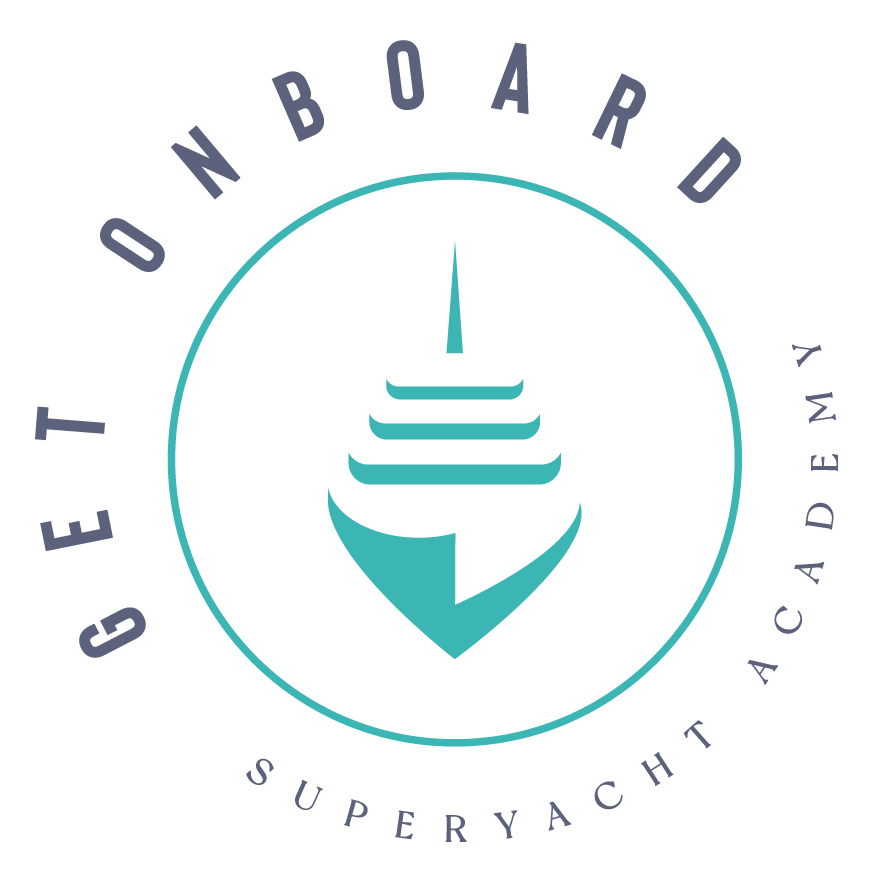
Get Onboard
Superyacht Training

Yacht Job Interview: How to Impress the Captain
There is no one-size-fits-all approach to knowing what captains or owners of luxury yachts are looking for in yacht staff, as each yacht is different. There are a few key things, however, to keep in mind and help you prepare for an interview. It is quite important for captains or owners of yachts to be very selective with who they choose to hire; a crew with good interpersonal skills can make all the difference for a successful charter.
What they are looking for in yacht crew depends on a number of things, including, but not limited to:
- How long the voyage is
- Who is onboard
- Where they are sailing
- The type of vessel
- And of course, the particular position you’re applying for
Skillset, the required yacht crew certificates, and training are vital, but it’s the combination of personality plus skill that makes for the perfect candidate. During the interview the interviewer will set out to distinguish a candidate’s strengths, motivation, and cultural fit on-board. Questions (and therefore answers) should be indirectly formulated to prove the following points:
- Can the candidate do the job?
- Will they enjoy doing the job?
- Will they be easy to work and live with?
Here are a few extras to keep in mind before going for your interview:
What to wear.
Yacht crew are usually given a standard uniform to wear during the charter. First impressions are extremely important, so pay extra attention to your attire, and smile.
- Wear a clean, crisp white polo shirt or t-shirt with beige or navy trousers or skirt.
- Wear your hair up, neat, and tidy.
- Look natural. Avoid heavy makeup and men should be clean-shaven with a trimmed haircut. Remove any facial piercings.
- Have clean, shaped nails and be well groomed.
- Body language is also very important – smile, sit up straight, and keep your head held high.
Common questions to prepare for
- “Tell me about yourself.” – A very common question even outside of yacht job interviews. Not only an ice-breaker, but your time to shine. If answered well, it will unquestionably increase your chances of obtaining a job offer. You will need to provide a coherent answer that has been prepared well in advance of the interview. Keep it to-the-point – two to three minutes is a good amount of time. Focus on past accomplishments and provide facts where you are able. If you have never worked as a yacht crew member before, don’t stress, you were chosen to be interviewed for a reason, so speak about any other skills you picked up along the way that may be relevant.
- “Why do you want to work on a yacht?” – This is a tricky one and the answer should never focus on you, but rather what you can bring to the table. Highlight your past experiences and skills that could assist the captain. Do no reference Below Deck as your motivation, this will not go down well.
- “Why should we hire you?” – This is again the chance to shine and deliver your final convincing argument. Keep it succinct and try to cover three things: convey that you are a solution to a recruitment problem, that your skills set sets you apart from the crowd, and that you meet the employer’s needs for this position.
- “Do you have any questions?” – These should be appropriate to the job you are applying for, and ideally not about the salary. Ask about the yacht, the crew, your duties, and the itinerary to show that you have a genuine interest in the role and its specifics.
Additional tips to help you shine
- Be confident and approachable in your demeanour.
- Convey resilience, commitment, and team spirit.
- Turn your mobile phone off before the interview.
- Show that you are eager to learn.
- If you are keen to take the job, say so and communicate that you will represent the yacht well – just don’t come across as desperate.
- Remember to thank the captain/interviewer for their time.
- Be ready to move quickly, yacht jobs are usually short-notice or sometimes same-day recruitment requests!
During the interview, you are also deciding whether this yacht will be the right fit for you. The key is to come across as competent, confident, and friendly, even if it is immediately apparent to you that you might not be interested in the position in question. In future the captain or crew agent who interviewed you may have a different position for which you could be the perfect candidate, so always impress!
If you would like more one-on-one guidance to prepare for your interview, get in touch with us to set up a consultation. We would love to help you ace your yacht job interview!
Needing more?
Error: Contact form not found.
RYA/MCA Online
1. what are the basic requirements you need to be eligible to work in the yachting industry, 2. what is the stcw and why do i need it, 3. what is the eng1 medical certificate, 4. what land based experience will help me find a super yacht job, 5. what are the different departments onboard, 6. what crew training is required for me to work as a junior deckhand.
- Yachtmaster/Coastal Skipper Theory
- Yachtmaster/Coastal Practical
- Specialist Super Yacht Training Course (Deck Hand Training Course)
- RYA Power Boat Level II
- RYA Personal Watercraft Course
- RYA Competent Crew Certificate
- RYA Day Skipper Theory and Practical Certificates
- VHF Radio Operator’s License
7. What crew training is required for me to work as a junior stewardess?
- Stewardess Course
- Proficiency in Designated Security Duties (PDSD)
- MCA Food Safety Level 2
- RYA Powerboat Level 2
8. How do I book my training courses?
9. how do i get my first job on a yacht, 10. are these courses worth it, or am i just wasting my money, 11. will i get hired for my first job from south africa, 12. what is daywork, 13. what are the best locations to get a yacht job, 14. how much can a motor yacht stewardess or deckhand earn, 15. what are the negatives of working on a yacht, 16. what are the positives of working on a yacht, 17. is working on a super yacht for everyone, 18. what is the minimum age to work on a yacht, 19. is accommodation provided when i am completing my yacht training in cape town.

By Wilsonhalligan Yacht Recruitment 22 Jun 2017
Top 10 Interview Questions For Yacht Crew How To Answer Them
Whether it’s your first interview or fiftieth, it’s always a good idea turn up well rested and prepared. to help our crew candidates nail their next interview, we’ve compiled a list of the top 10 most popular interview questions for working on yachts and ….

Whether it’s your first interview or fiftieth, it’s always a good idea turn up well rested and prepared. To help our crew candidates nail their next interview, we’ve compiled a list of the top 10 most popular interview questions for working on yachts and superyachts with helpful tips on how to answer them.What about your current position do you dislike?
With this question, it’s very important to remain professional but be honest. For example, a good answer would be “ I enjoy the yacht and crew however; the role does not challenge me and I am frustrated not stepping up to a bigger role .”
What are the elements that your perfect job would be made up of?
The top four things we would suggest would be; Great Owner, Crew, Terms and Travel.
What gives you the highest level of job satisfaction?
Rather than focusing solely on the personal aspects that you could answer with think about, think about the customer such as “ Happy guests after a trip and getting to be on a beach with friends when time allows ”.
Tell me about your last three jobs.
Rather than going through the ins and outs of each job, choose factors such as how you were managed and personal relationships with people, your career path and personal development within those jobs.
Why did you take each position? Why did you leave each?
Be honest with this question as reference checking will unearth any skeletons. If you needed seatime or wanted to explore the Pacific, tell your interviewer.
If I offered you your ideal job today, what factors would delay you taking that job immediately?
This questions always puts you on the spot and under pressure. Answering can I have 24 hours to think it over, will show methodical thinking. This is not an opportunity to inform the yacht you are waiting on another offer and you will take the higher. Do however tell the interviewer you are speaking with another yacht.
What is the most significant impact you’ve had on your current workplace in the last year?
There are potentially two avenues you can take with this, you can show personality or show a professional contribution. Personality – “ I brought together the departments and boosted morale by ….. organising dinner, hikes, sailing” . Or a professional answer highlight such as “ I amended safety procedures onboard, aligned budgets and developed a new work rota ”.
How have you improved yourself in the last year?
Take this as an opportunity to sell yourself; outline what courses you have taken and why. Explain how you have reflected on your workmanship since leaving your last yacht, e.g. you will be more detailed / assertive / relaxed / mature / disciplined.
What would your previous employers say about you?
As it’s often difficult to review how others perceive you, repeat was has been mentioned during your appraisals and reviews. I hope they would say I am reliable, someone they would rehire, however avoid the clichéd answers.
Tell me a little about your personality.
This is another opportunity to sell yourself. Try and navigate away from clichés and think what really makes you as a person stand out. Remember your answer may come back to haunt you.
If you have any else you would like to discuss regarding your upcoming interview, please don’t hesitate to get in contact with us or chat with us on #webchatwednesdays where we’re available all day via the live chat on our website.
View company profile
The entity that submits this press release to SuperyachtNews.com hereby accepts sole responsibility for the facts, accuracy and completeness of the content. All content and mediums submitted are an acknowledgement of the suitability for publication. SuperyachtNews.com accepts no liability or responsibility for any inaccuracies or errors made by the submitter in this regard.
Click here to become part of The Superyacht Group community, and join us in our mission to make this industry accessible to all, and prosperous for the long-term. We are offering access to the superyacht industry’s most comprehensive and longstanding archive of business-critical information, as well as a comprehensive, real-time superyacht fleet database, for just £10 per month, because we are One Industry with One Mission. Sign up here .
Sign up to the SuperyachtNews Bulletin
Receive unrivalled market intelligence, weekly headlines and the most relevant and insightful journalism directly to your inbox.
Sign up to the SuperyachtNews Bulletin
The superyachtnews app.

Follow us on
Media Pack Request
Please select exactly what you would like to receive from us by ticking the boxes below:
SuperyachtNews.com
LISTEN TO THE PODCAST
Free masterclass, yachting courses, watch my free live masterclass "how to get a job on a yacht" .
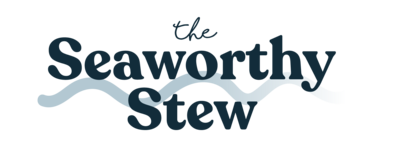
back to blog
7 Ways To Nail Your First 7 Days As A Yacht Stew.
Freebie alert: Junior Stews Download now
![[PenelopeTemplate]taylor-simpson-azI_KfAnC8E-unsplash martini mondays public relations and strategy brisbane](https://static.showit.co/400/-j3kPzfNRjm8JSippHi7Dw/shared/penelopetemplate_taylor-simpson-azi_kfanc8e-unsplash.jpg)
Blog Categories
Superyacht jobs, life onboard, about yachting, listen now.
Hear about the real yacht life, info on how to kickstart your superyacht career and tips on becoming a super stew.
The Seaworthy Stew: Podcast
![[PenelopeTemplate]content-pixie-VIh-B-bNZMc-unsplash martini mondays public relations and strategy brisbane](https://static.showit.co/400/sgOjawVZS0WmIQiKY2Ntrg/shared/penelopetemplate_content-pixie-vih-b-bnzmc-unsplash.jpg)
A Chief Stew with 6+ years experience in the superyacht industry. I help aspiring crew confidently land their first job and teach the skills needed to be a stand out YACHT STEW.
Hey, I'm Jess
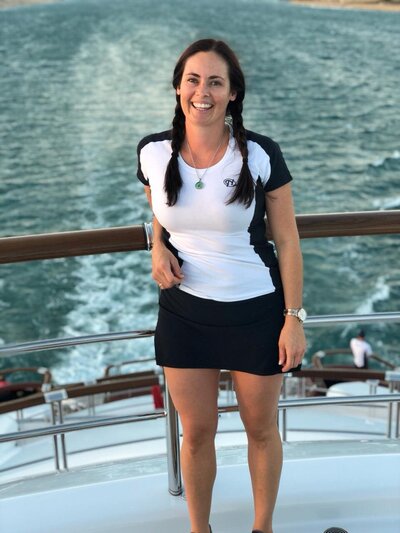
5 Yachting Interview Questions to Ask (& What Not To Say
Superyacht jobs, filed under:.

Tune in via
Listen now- check out the seaworthy stew podcast here.
An exciting (and nerve-wracking) part of getting your first yachting job is getting the call or email to say you’ve been short-listed for an interview.
You may wonder how to prepare for your yachting interview. In this post I share 5 questions to ask in your interview and why. It will give you a good insight into the yacht you’re being interviewed for.
An interview is as much of a decider for you as it is for the boat to see if you would be suitable for the role. After all, I don’t want you to get on a poorly run vessel so I’m hoping these questions will allow you to sort through and find a great boat.
Your interview could be with the recruitment agency or with the crew on the yacht such as Chief Stew or Captain. It is also possible that you may do several interviews one with the recruitment agency, one with the chief stew and then one with the captain to get the final approval.
5 Yachting Interview Questions To Ask:
- How many crew onboard? This question will give you a good idea as to if the boat is run with minimal crew. To perform duties to a superyacht standard, yachts need a certain amount of crew. If a yacht is run with not enough crew it means you probably won’t be getting the hours of rest you’re legally supposed to and it can’t afford to pay enough crew so the budget will be tight, which affects crew food, and toiletries etc.
- Is the role permanent or seasonal? Is the yacht dual Season? These questions will determine if you’ll be looking for another job at the end of the season or if you’ll be onboard permanently. There are pros and cons to working on a seasonal yacht – you can travel after the season as you’re usually cashed up and you are not tied to the boat for a long time if you have other commitments however you also can’t get great longevity from a seasonal yacht and this is something highly valued in the industry. It is also worth asking if the yacht is dual-season (using this yachtie language is also a bonus). This means the yacht does both the Med and the Caribbean season and you’ll get to experience both seasons which is a must in my eyes.
- What is the longevity like for the crew onboard? This is a great indicator of how well run and great a yacht is to work on. If you have crew coming and going all the time with less than a year on board that is a sign that something could be going on with management the owner or the head of department. If the crew have been on for years it shows that the crew like their job.
- What activities do the crew do together outside of work? This gives you an idea of the crew culture onboard to see if it’s a good fit for you. There are different types of crew on superyachts, there are the fit boats and the crew can be found eating really well, gymming onboard, doing hikes in their downtime, and exploring in nature. Drinking is not a priority. Then there are the party-goers, when guests are off they are hitting it hard, partying in the local bars, back on the boat, rocking up with hangovers at work, and the end goal is to go hard or go home, it’s not unheard of for crew to be using cocaine in these environments. Then there are boats with a well-balanced crew who enjoy each other’s company, enjoy a drink after work and explore the local area on the weekend. Whatever you enjoy doing see if it fits in with what the crew like to do.
- Instead of asking where the boat will go or who the owner is, ask what kind of program does the boat have? This question allows you to get an insight into: a) If it is heavily used for charter/boss trips, sometimes yachts say they are private/charter yet they only charter once a year because the price to rent the boat is so much. This can affect your salary as generally speaking charter yachts pay crew a little less than private as they factor in tips. So if the pay isn’t great and the boat says “well it’s charter you will get tips”, yet they never charter you’re taking a pay cut for that. b) If the yacht has a live aboard owner, meaning you’re ‘always’ on charter. c) If the boat is always at anchor it means access to shore-time is limited as you need to get a tender ashore. This also can indicate that the boat doesn’t pay to be in port, which can mean a small budget however it can also be that the boat is too big to fit in port for example the well-known 162m superyacht yacht Eclipse cannot fit into many ports, so it is always at anchor. d) If it is world cruising meaning you may get to travel to some places which are out of the general ‘milk run’ routes such as Capri and Monaco. I’ve had friends travel to some incredible places on world cruising yachts even as far afield as Antarctica. However, with these world travelling yachts it can generally mean you’re not out socialising and meeting other crew as much as you’re exploring so it really depends on what you want you’re yachting adventure to be like. I will say with the world cruising yachts crew, you will spend a lot of time with your crew so try and get a good idea of what type of people they are, nationalities, hobbies etc.
Questions NOT to ask in an interview:
- Who are the owners? The person interviewing you will probably reveal the owner’s nationality, what kind of service they do and if it’s a family-run, business-like or party environment. With a little research after your interview, I’m sure you can find out more information about the yacht.
- Do I get the weekends off? This is an alarm bell for a Chief Stew as it says a lot about the person interviewing and thinking more about the time off then the work. All crew get time off yes, and your contract will specifically say how many days and your package details.
- Is there a drug test and how often? Drug tests onboard are pretty common, they can be random checks or they can be every time you get back from holidays. Don’t ask this in an interview it says lots about you as a person.
- How much will I get paid? I encourage you to let the interviewer bring this up with you. I know it’s a big part of the job however let them tell you all about the job first then tell you the package details. Make sure you get a contract before you join a vessel with your pay details and flight packages, if it hasn’t been organised then you will need to ask about the pay.
Want to learn more about how to get a job on a superyacht? Check out my free eBook “Your First Steps To Yachting” grab it here
Want to build up your stewardess skills with an on-demand stewardess training course? Check out The Seaworthy Yacht Stew Training Course here

listen to the podcast
About .
I’m a chief stewardess with over 6 years experience working in the superyacht industry on boats up to 88m. I help aspiring yacht crew by propelling them with the know-how and tools to confidently break into the superyacht industry.
Hey, I'm Jess a friendly Yacht Stew here to help!

@THESEAWORTHYSTEW

privacy & terms
© 2020 the seaworthy stew, masterclass, listen on the podcast.
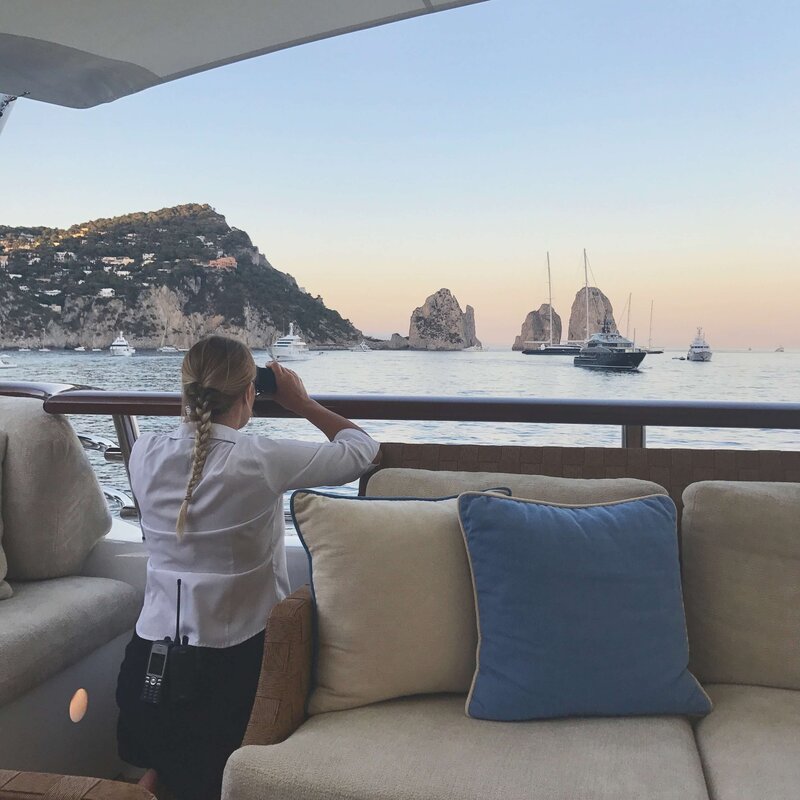
welcome, friend
- Bottom Painting & Prop Speed
- Fiberglass & Paint Work
- Running Gear & Valves
- Full-Service Team
- Monthly Maintenance Programs
- Dockside Service Team
- Full-Service Boatyard
- Management Services
- Accounting & Reporting
- Relevant Management Experience
- News and Media
Tips to Use When Interviewing for a Yacht Job

There is a large amount of competition in the yacht industry job market. With experienced yacht crews and newcomers coming aboard, patience is key to finding a yacht crew job.
When it comes to getting a job in the yacht industry, the most important thing to know is that first impressions are everything. Whether you plan on interviewing for a position on a yacht as a marine mechanic or as part of the yacht crew, here are some of the most important interview tips for getting a job on a yacht from our South Florida marina and yacht maintenance company!

How to Get a Job on a Yacht
To be hired on a yacht with no experience, the key is to be in the right place at the right time. Consider finding a yacht crew placement consultant that can help guide you to getting a job on a yacht that best fits your abilities and goals. Our boat hull painting in Miami recommends having a professional resume that highlights your skills and maritime knowledge, including awards, licenses, and certifications you have received.
Another way to easily get a job on a yacht is ensuring you have your STCW certification, also known as the “Standards of Training and Certification of Watchkeeping.” It is a mandated course determined by the International Maritime Organization (IMO) for all flag states in the U.S. It is also the international standard for almost every leading flag state in the world, making it a very important certification to have in the industry.
Consider surrounding yourself with the maritime industry and finding creative and professional ways to build references throughout your daily work. This is a great tip for getting a job on a yacht for those who wish to get more involved within the maritime community and learn more about different yachts and positions.
What Job Positions Are There on a Yacht?
It can be difficult to know which yacht crew position is right for you when getting a job on a yacht. The key to knowing the different positions on a yacht is understanding your goals for being a part of a yacht crew. You will want to ensure you find a position that you enjoy and are capable of handling.
Depending on the size of the yacht or superyacht, you may be assigned to a larger crew. The bigger the yacht, the more assistance the owner will need with maintaining, servicing, and chartering their boat. Here are some popular yacht crew positions you can find within the maritime industry.
- First Officer
- Second Officer / Mate
- Chief Engineer
- Second Engineer
- Third Engineer
- AV IT Engineer
- Left Deckhand
- Second Chef
- Crew Chef
- Interior Manager
- Marine Mechanic
- Marine Electrician
Superyacht Interview Tips
If you plan on applying for a job on a yacht, here are some interview tips to help get you the position! At Yacht Management, a South Florida yacht management company, we take our yacht crew interviewing very seriously and base our hires on the following interview techniques for working on a superyacht we manage.
- First impressions are everything, so ensure that you are in a pristine position and put yourself in the best light.
- Dress the part. Yacht crew attire includes a crisp polo shirt with shorts or a skirt. Be sure you have the right clothes for getting a job on a yacht.
- Do your research on the yacht company you wish to work for. If you are aware of the name of the superyacht, look it up and show the interviewer how interested you are in working on the vessel. Ask plenty of questions to help drive your interest to the employer.
- Be sure to express honesty and positivity throughout the interview process as well as showcase your initiative, confidence, and commitment to teamwork. After all, a yacht crew isn’t a one-person show as you will be working with other crew members aboard.
- Communicate well with your interviewer, be attentive, listen, and show genuine interest in the employer. When hiring a yacht crew, we also look for eye contact and body language to ensure that the crew member is a good fit for the job.
Working for a Fort Lauderdale, Yacht Management Company
At Yacht Management, we are constantly looking to hire new crew members that are looking for careers in the yacht industry . We offer boat bottom cleaning services , gelcoat refinishing , and a wide range of yacht maintenance services to ensure that our clients’ yachts are working at their full potential. Our yacht mechanics perform various installations and repairs to equipment and machinery as needed, using hand and power tools to help get the job done seamlessly.
Contact us today to learn more about our Fort Lauderdale yacht management services , and be sure to ask about how often you need to varnish a boat deck to learn more before scheduling your next maintenance call!
Additional Readings:
Boat Beehive Removal in South Florida
Guide to Vessel Haul Outs
Best Paint for Fiberglass Boats

For all inquiries, fill out the form below and a member of our team will respond as soon as possible

30 Yacht Stewardess Interview Questions and Answers
Common Yacht Stewardess interview questions, how to answer them, and example answers from a certified career coach.

Stepping into the world of luxury yachting as a stewardess is no easy task. From maintaining meticulous standards to providing exceptional guest service while living in close quarters, this role demands unparalleled professionalism and dedication. Employers are looking for individuals who can demonstrate these qualities and more, during an interview.
In this article, we delve into some typical yacht stewardess interview questions, providing you with insights on how best to answer them. Whether you’re new to the industry or seeking advancement in your career, our guide will help prepare you for that all-important interview and bring you one step closer to securing your dream job on the high seas.
1. Can you describe your previous experience in the yacht industry?
Experience, as they say, is often the best teacher. Hiring managers for a Yacht Stewardess position want to confirm you have a solid background in the yacht industry, or at least relevant experience that would translate well. The unique challenges and demands of life at sea, coupled with the high standards of service expected on luxury yachts, require a specific skill set and adaptability. Your previous experiences can provide a snapshot of your capabilities and temperament for this unique job.
Example: “I have spent the last three years working on a private luxury yacht, providing high-level service to discerning clients. My responsibilities included maintaining cleanliness, preparing meals and organizing onboard activities.
I was also responsible for managing inventory and ensuring that all guest needs were met promptly. This experience allowed me to develop strong problem-solving skills and an eye for detail.
In addition to this, I’ve completed training courses in silver service and wine knowledge, enhancing my ability to provide exceptional service.”
2. How would you handle a situation where a guest is unsatisfied with your service?
Working on a yacht means providing top-tier service in a confined space, where you’re always on display and there’s nowhere to hide. Given the high expectations and close quarters, there’s a high likelihood of having to deal with dissatisfaction at some point. The question tests your ability to handle criticism, maintain professionalism, and swiftly address issues, all of which are key to delivering excellent customer service and ensuring a harmonious onboard atmosphere.
Example: “In the event of a guest being unsatisfied, I would first ensure to listen attentively to their concerns. Understanding their perspective is crucial in resolving any issue effectively.
After understanding the problem, I’d apologize sincerely for any inconvenience caused and reassure them that we will do our utmost to rectify the situation promptly.
Then, depending on the nature of the complaint, I would take immediate action. This could involve replacing an item, offering a complimentary service or simply providing more attention to detail.
Finally, I would follow-up with the guest to confirm they are now satisfied. This not only shows commitment to resolving their issue but also helps build trust and rapport, which is essential in this line of work.”
3. What are the key elements of maintaining a high standard of cleanliness on a yacht?
The question is posed to measure your understanding of maintaining impeccable cleanliness and order on a yacht. As a stewardess, you’re expected to have a keen eye for detail, and the ability to uphold the highest standards of hygiene and presentation. This is essential in creating an enjoyable and safe environment for guests and crew members alike.
Example: “Maintaining a high standard of cleanliness on a yacht involves regular and thorough cleaning routines. This includes daily tasks such as sweeping, mopping, dusting, and sanitizing surfaces in all areas of the yacht.
Equally important is deep-cleaning at regular intervals to address hard-to-reach areas and prevent build-up of dirt or grime. Using appropriate cleaning products for different materials onboard also ensures longevity and preserves aesthetic appeal.
Moreover, managing waste effectively by separating recyclables, compostables, and disposables is crucial.
Lastly, maintaining personal hygiene among crew members helps avoid cross-contamination. Regular handwashing, use of gloves when necessary, and keeping personal spaces tidy are key practices.
These elements combined ensure a pristine environment conducive to luxury yachting experiences.”
4. How familiar are you with safety procedures on a yacht?
Let’s set sail into the heart of the matter! Safety is paramount in all seafaring roles, including that of a yacht stewardess. When you’re out on the open water, emergencies can’t be handled by a quick call to 911. Interviewers want to ensure you’re already familiar with critical safety procedures, or at the very least, capable of learning them quickly. They want to trust that you can keep your head in a crisis and contribute to the safety and wellbeing of all onboard.
Example: “I am well-versed in yacht safety procedures. This includes knowledge of fire safety protocols, understanding the use of life-saving equipment such as life jackets and rafts, and knowing how to respond to various emergency situations like man overboard or severe weather conditions.
Moreover, I’m familiar with routine safety checks that ensure all equipment is functioning properly. I also understand the importance of regular crew drills to keep everyone sharp on their roles during an emergency.
In terms of health safety, I have basic first aid training and know how to maintain hygiene standards onboard to prevent outbreaks of illnesses.
Overall, my focus is always on creating a safe environment for both guests and crew members.”
5. How would you handle a medical emergency on board?
When you’re out at sea, the stakes are higher and help can be farther away. As a yacht stewardess, you’re not just serving meals and making beds—you’re part of a team that’s responsible for the safety and well-being of everyone on board. Therefore, it’s critical that you can think on your feet and handle high-pressure situations, including medical emergencies. This question helps hiring managers understand your ability to respond effectively and efficiently in a crisis.
Example: “In case of a medical emergency on board, I would first ensure the safety and stability of the patient. This could involve administering first aid or CPR if necessary.
Next, I’d communicate with the captain to inform them about the situation. It’s crucial that they’re aware so they can make decisions regarding adjusting course for medical assistance or contacting coast guard services.
Simultaneously, I’d contact professional medical help via our onboard communication systems. They can provide immediate advice while we arrange for further medical support.
Finally, I will document the incident thoroughly for future reference and insurance purposes. The key is staying calm, acting swiftly, and ensuring clear communication throughout.”
6. What is your approach to dealing with difficult guests or crew members?
Maintaining harmony on a yacht is paramount. As a stewardess, you are not only providing service but also ensuring a positive, enjoyable atmosphere for guests and crew members alike. Dealing with difficult individuals can disrupt this harmony, so a potential employer wants to know how you’d navigate such situations. Your response can indicate your conflict resolution skills, emotional intelligence, and overall suitability for the demanding environment of a yacht.
Example: “In handling difficult guests or crew members, my approach is to remain calm and professional. I believe that understanding their concerns and showing empathy can help defuse tension.
If a guest is unhappy, I would listen attentively to their grievances, validate their feelings, and assure them that we value their comfort and satisfaction above all else. Then I’d work towards finding an immediate solution.
For challenging crew members, open communication is key. If there’s conflict, I’d encourage a private conversation to understand their perspective and find common ground. It’s crucial to maintain harmony onboard for everyone’s wellbeing.
Overall, patience, diplomacy, and excellent interpersonal skills are essential in these situations.”
7. Can you describe a time when you had to handle a stressful situation on board?
Life on a yacht can sometimes be unpredictable, with high-profile guests, potentially rough seas, and high-stakes events. It’s imperative for a stewardess to be able to manage stress effectively and provide exceptional service no matter the situation. Interviewers ask this question to assess your problem-solving skills, your ability to stay calm under pressure, and your commitment to maintaining a high standard of service even in challenging circumstances.
Example: “During a charter, we faced severe weather conditions that caused panic among the guests. I quickly implemented our safety protocol, ensuring all guests had life jackets and were moved to safe areas of the yacht.
In the meantime, I maintained open communication with the captain about the situation. My calm demeanor helped reassure the guests, easing their anxiety.
Despite the stress, I was able to efficiently manage the situation by prioritizing safety and providing clear instructions. This experience taught me the importance of preparedness and effective communication in high-pressure situations.”
8. How do you ensure that you provide a high level of discretion and privacy for guests?
Working as a yacht stewardess means you’ll be in close proximity to high-profile guests, often in their most private moments. It’s essential that you demonstrate an understanding and respect for the boundaries and discretion necessary in this role. The interviewer wants to know that you’re trustworthy and can offer the utmost confidentiality, maintaining the reputation and integrity of the yacht’s service.
Example: “Maintaining discretion and privacy is paramount in the role of a Yacht Stewardess. I ensure this by adhering strictly to confidentiality protocols, not discussing guest information outside my professional duties.
I also practice active listening to understand guests’ requirements for privacy and act accordingly. For instance, if a guest prefers minimal interaction, I respect that by providing service in an unobtrusive manner.
Moreover, I keep personal spaces tidy and undisturbed unless requested otherwise. Any documents or items found during cleaning are treated with utmost confidentiality.
In essence, I believe in treating every guest’s privacy as I would want mine to be respected.”
9. What is your experience with preparing and serving meals on a yacht?
As a yacht stewardess, your role extends beyond just providing excellent service to guests. It also involves understanding the intricacies of preparing and serving meals in a unique environment, such as a yacht. Interviewers want to know if you have the necessary experience and skills to manage these tasks smoothly, ensuring the comfort and satisfaction of guests on board.
Example: “I have extensive experience in preparing and serving meals on a yacht. My culinary skills are diverse, ranging from creating simple yet elegant dishes to crafting multi-course gourmet meals.
Understanding the importance of presentation, I ensure that each dish is visually appealing. I also consider dietary preferences and restrictions when planning menus.
In terms of service, I’m adept at setting up formal dining settings as well as more casual arrangements. I maintain high standards of cleanliness and organization in the kitchen and dining areas.
My goal is always to provide an exceptional dining experience for guests, exceeding their expectations with every meal.”
10. How do you ensure that all areas of the yacht are clean and well-maintained?
Ensuring the yacht is in pristine condition is a pivotal part of a stewardess’s job. They want to know your attention to detail, your ability to multitask, and your dedication to maintaining the high standards expected on a luxury yacht. Your answer can reveal your understanding of the role and your commitment to providing an exceptional experience for the yacht’s guests.
Example: “To ensure all areas of the yacht are clean and well-maintained, I believe in implementing a systematic approach. This involves creating a detailed checklist that covers every area of the yacht, from cabins to engine room. Regular inspections and immediate action on any issues found is crucial.
In terms of cleanliness, using high-quality cleaning products and equipment is essential. Moreover, understanding the unique requirements for different materials used onboard helps prevent damage while ensuring thorough cleaning.
For maintenance, it’s important to have a solid understanding of the yacht’s systems and components. Regular preventative measures can help avoid major issues down the line.
Teamwork also plays a key role as everyone must understand their responsibilities and work together to maintain the yacht’s pristine condition.”
11. How would you handle a situation where a guest has specific dietary requirements?
As a Yacht Stewardess, you wear many hats and one of them is to ensure the comfort and satisfaction of guests onboard. This includes understanding and catering to their unique dietary needs and preferences. The question aims to assess your problem-solving skills, your ability to accommodate diverse needs, and your commitment to providing excellent customer service, even in challenging situations.
Example: “Understanding and accommodating a guest’s dietary requirements is crucial in providing excellent service. I would first ensure to gather this information during the pre-boarding process.
Once I know their needs, I’d liaise with the chef to plan meals that not only meet these requirements but also offer an enjoyable dining experience. In cases where we need specific ingredients, I’d source them ahead of time.
If any changes occur during the trip, I’d communicate promptly with the relevant team members to adjust accordingly. It’s all about proactive planning, clear communication, and flexibility to ensure our guests have a seamless and pleasant stay on board.”
12. Can you describe your experience with managing inventory on a yacht?
The heart of this question lies in understanding your organizational skills, attention to detail, and ability to manage resources efficiently. As a yacht stewardess, your responsibilities include maintaining the yacht’s interior supplies and ensuring everything is well-stocked and organized. This can include anything from food and drink to linens and toiletries. A potential employer wants to know if you can handle this task effectively, as it’s a key part of ensuring a smooth and comfortable experience for guests on board.
Example: “In managing yacht inventory, precision and organization are key. I have experience in maintaining a detailed record of all onboard supplies, from food and beverages to cleaning products and guest amenities.
I regularly conduct audits to ensure we’re well-stocked, taking into account the preferences of both guests and crew. This involves liaising with suppliers, negotiating prices, and coordinating deliveries at various ports.
Moreover, understanding the storage constraints on a yacht is crucial. I’ve developed efficient systems for storing items to maximize space without compromising accessibility.
Overall, my approach combines meticulous attention to detail with proactive planning to ensure smooth operations.”
13. How do you ensure that you are always available to assist guests without being intrusive?
As a yacht stewardess, your primary role is to ensure guests have a fabulous time while maintaining their privacy and personal space. Hence, the interviewer wants to know your tact in managing this delicate balance. They are interested in your ability to provide top-notch service while being discreet, respectful, and understanding of the guests’ needs for privacy. It’s about showing your skills in hospitality, attentiveness, and sensitivity to social cues.
Example: “Understanding the balance between availability and privacy is crucial in a yacht stewardess role. I ensure this by maintaining a keen sense of observation to pick up on guests’ cues, such as body language or tone of voice, which can indicate their need for assistance or desire for solitude.
I also maintain regular but discreet check-ins, ensuring that everything is satisfactory without being overly present. A simple glance from afar can often tell if a guest needs something.
Furthermore, clear communication at the start about preferred methods and times of contact helps set boundaries. This way, I can provide high-quality service while respecting personal space.”
14. How would you handle a situation where a guest is seasick?
Being a yacht stewardess is not just about serving food and drinks with a smile. It also involves ensuring the comfort and safety of all guests. This includes being able to handle unexpected situations like a guest experiencing seasickness. The interviewer wants to know how you would approach this situation, demonstrating your problem-solving skills, empathy, and ability to react calmly under pressure.
Example: “In such a situation, I would first ensure the guest is comfortable and safe. I’d offer remedies like ginger candies or wristbands that can help alleviate seasickness symptoms.
If these options are not effective, we have over-the-counter medications onboard which can be offered after consulting with the captain.
Throughout this process, it’s crucial to maintain open communication with the guest, ensuring they feel cared for and reassured. In severe cases, we may need to alter course or speed to provide smoother sailing conditions.”
15. What is your approach to dealing with unexpected changes in schedules or plans?
As a yacht stewardess, you’ll be operating in an environment where the unexpected is the norm. Whether it’s sudden changes in weather, last-minute guest requests, or unexpected maintenance issues, the ability to adapt quickly and handle these situations with grace and efficiency is key. Therefore, the interviewer wants to see if you have the flexibility and problem-solving skills necessary to thrive in this unpredictable work environment.
Example: “In the yachting industry, unexpected changes are quite common due to weather conditions or guest preferences. My approach is to remain flexible and proactive. I always have a backup plan ready for different scenarios.
When plans change, I quickly assess the situation, consider alternatives, and implement the most suitable solution without compromising service quality. It’s also crucial to keep clear communication with the team during such times to ensure smooth operations.
Staying calm under pressure helps me adapt efficiently. Every unexpected change is an opportunity to showcase problem-solving skills and deliver exceptional service despite challenges.”
16. How familiar are you with different types of luxury table settings and service styles?
The essence of a yacht stewardess role is all about providing a luxury experience for the guests onboard. This includes, but is not limited to, impeccable table service and presentation. A potential employer would want you to demonstrate your knowledge in this area to ensure you can deliver the high level of service expected in such a luxurious environment.
Example: “I am well-versed in various luxury table settings and service styles. I have experience with formal, informal, buffet, family-style, and Russian service settings. Each requires a different approach to setting the table and serving guests.
In formal settings, precision is key; every utensil, glass, and plate has its place. Informal settings are less rigid but still require attention to detail. Buffet style needs strategic placement for easy access while maintaining an appealing layout. Family-style encourages interaction, so it’s about creating a warm, inviting space. Russian service is all about grandeur and impressing guests, requiring impeccable timing and coordination.
Understanding these differences enables me to adapt quickly and provide excellent service regardless of the situation or guest preferences.”
17. Can you describe a time when you had to resolve a conflict between guests or crew members?
As a yacht stewardess, you’re the face of hospitality on board, and harmony among guests and crew is paramount to ensuring a pleasant experience. Conflict resolution skills are key in this role, as you may often find yourself in the middle of disagreements or misunderstandings. Demonstrating your ability to handle these situations with grace, respect, and patience shows potential employers that you’re equipped to maintain a positive environment on board.
Example: “During a charter, two guests had a disagreement over itinerary plans. One wanted to visit a popular tourist spot while the other preferred a secluded beach. I approached each guest individually to understand their preferences and concerns.
Afterwards, I proposed a solution that accommodated both desires: we would spend half of the day at the tourist spot and the rest on the secluded beach. Both guests agreed to this compromise.
In another instance, two crew members disagreed about cleaning responsibilities. I facilitated a conversation between them where they could express their views openly. We then redefined their roles clearly to prevent future misunderstandings.”
18. How would you handle a situation where a guest has brought a pet on board?
This query is designed for the employer to gauge your flexibility and problem-solving skills. As a yacht stewardess, you’ll often be faced with unexpected situations, such as a guest bringing a pet on board. Your ability to handle such surprises with grace, adaptability, and a customer-oriented approach will be critical to your success in this role.
Example: “In handling a situation where a guest has brought a pet on board, I would first ensure the safety and comfort of all parties involved. It’s crucial to clarify if pets are allowed according to yacht policy or specific charter agreements.
If pets are permitted, I’d make sure that the animal is well-cared for during their stay, ensuring cleanliness and orderliness. If not, I would politely inform the guest about our policy while offering alternative solutions such as arranging for pet care services ashore.
Maintaining open communication with guests regarding their needs and expectations is essential in these situations. This approach ensures we provide excellent service while adhering to company policies and maintaining the welfare of all guests on board.”
19. How do you ensure that you maintain a professional appearance and demeanor at all times?
Polished professionalism is at the core of a Yacht Stewardess’ role, given the high-end clientele and the need to represent the yacht’s brand positively. By asking this question, hiring managers can gauge your understanding of and commitment to maintaining high standards of personal grooming and professional conduct, regardless of the situation at hand.
Example: “Maintaining a professional appearance and demeanor is crucial in the role of a Yacht Stewardess. I do this by ensuring my uniform is always clean, well-fitted, and ironed. Personal grooming such as neat hair, minimal makeup, and good hygiene are also priorities.
In terms of demeanor, it’s about being respectful, polite, and attentive to guests’ needs at all times. I maintain composure under pressure and handle any issues with grace and discretion. Regular self-reflection helps me identify areas for improvement.
I believe that professionalism isn’t just an act but a lifestyle. It reflects in every interaction, whether with guests or team members. This mindset has helped me excel in providing top-notch service throughout my career.”
20. What is your experience with planning and executing events or parties on a yacht?
A significant part of a yacht stewardess’ role is to ensure that guests have an exceptional experience, which often includes organizing and executing events. Hiring managers want to ensure that you have the organizational skills, attention to detail, and creativity required to plan and execute these events to a high standard. Your ability to handle logistics, cater to guest preferences, and create memorable experiences is critical in this role.
Example: “I have extensive experience in planning and executing events on yachts. My approach involves understanding the client’s vision, then meticulously organizing every detail from food and beverage to entertainment.
My expertise lies in creating a seamless flow for the event while ensuring all safety procedures are adhered to. I’ve successfully managed diverse events such as corporate gatherings, private parties, and themed celebrations.
One of my key strengths is problem-solving under pressure which guarantees smooth operations even when unexpected situations arise. Also, I am adept at maintaining an exceptional level of service throughout the event.
In short, my experience and skills ensure memorable yacht events that exceed clients’ expectations.”
21. How do you handle the physical demands of the job, such as lifting heavy items or working long hours?
Life on a yacht is not all sunshine and sea breezes. Stewardesses are often tasked with heavy lifting, long hours, and tasks that require physical stamina. Employers want to ensure that you’re physically capable of handling the demands of the job, and that you have strategies in place to maintain your health and energy levels.
Example: “Maintaining physical fitness is essential for the demanding tasks of a Yacht Stewardess. I engage in regular workouts, focusing on strength and endurance to ensure I can handle heavy lifting or prolonged standing.
I also understand the importance of rest and proper nutrition. This helps me maintain my energy levels during long hours.
To manage workload effectively, I prioritize tasks and take short breaks when possible. It’s all about balance and understanding your limits while still delivering exceptional service.”
22. Can you describe a time when you had to use your problem-solving skills on board?
Navigating the seas is never without its surprises, and in the luxury yachting industry, delivering a flawless experience is paramount. This question aims to ascertain your ability to think on your feet, troubleshoot unexpected problems, and maintain the highest level of service, even under pressure or in challenging circumstances. Your ability to solve problems directly impacts the satisfaction of guests and the smooth running of the yacht.
Example: “During a charter, we encountered an unexpected storm. The guests were nervous and uncomfortable. I quickly assessed the situation and decided to distract them with an impromptu indoor entertainment program.
I coordinated with the chef for some comfort food while setting up board games and movies in the main salon. This not only diverted their attention but also helped create a cozy atmosphere. It was a challenging situation that required quick thinking and problem-solving skills to ensure guest satisfaction despite unfavorable circumstances.”
23. How do you ensure that all guest accommodations are prepared and ready for their arrival?
Maintaining a high standard of customer service is essential in a luxury industry like yachting. This question helps employers gauge your attention to detail, your ability to foresee guest needs, and your commitment to creating a welcoming and comfortable environment. It’s all about ensuring the guests’ experience on the yacht is nothing short of exceptional from the moment they step onboard.
Example: “To ensure all guest accommodations are prepared, I first create a checklist of tasks to be completed before arrival. This includes cleaning and sanitizing the rooms, stocking amenities, and setting up personalized touches based on guest preferences.
I then delegate these tasks to my team, ensuring everyone understands their responsibilities. Regular inspections are conducted to maintain high standards.
Communication is key in this process. Any changes or special requests from guests are promptly addressed. By being proactive and detail-oriented, we can guarantee a seamless experience for our guests.”
24. What is your approach to dealing with jet-lagged guests or those from different time zones?
As a yacht stewardess, you’re expected to provide top-tier service to guests from all around the globe, who may be dealing with jet lag or adjusting to different time zones. This question helps assess your understanding of the unique challenges these guests might face and your ability to adapt your service to accommodate their needs, ultimately ensuring their comfort and satisfaction.
Example: “Understanding the needs of guests from different time zones is crucial. I would ensure that their rooms are prepared for rest upon arrival, with blackout curtains and a quiet environment to aid sleep.
For jet-lagged guests, providing them with light meals rich in protein can help reset their internal clocks. Offering beverages like chamomile tea or warm milk can also promote relaxation and sleep.
I’d be flexible with service times, adjusting meal and activity schedules to suit their body clock rather than local time.
Lastly, promoting gentle physical activities such as swimming or walking on deck can help adjust their circadian rhythm faster. It’s all about personalizing services to meet individual needs.”
25. Can you describe a time when you had to handle a maintenance issue on board?
In the dynamic environment of a yacht, unforeseen issues can arise at any time. The interviewer wants to know if you can handle situations where you might have to step outside your typical duties and problem-solve on the fly. They’re interested in your ability to respond to unexpected challenges, keep a cool head, and ensure the safety and comfort of passengers and crew alike.
Example: “During a charter trip, we experienced an unexpected power outage. I quickly assessed the situation and found that one of our generators had failed.
I immediately informed the captain and contacted our on-call engineer. While waiting for instructions, I ensured all guests were safe and comfortable, using emergency lighting and providing reassurances.
The issue was resolved swiftly under my coordination with minimal disruption to our guests’ experience. This incident highlighted the importance of quick thinking, effective communication, and maintaining guest satisfaction during unforeseen circumstances.”
26. How do you ensure that all safety equipment is in good working order?
Safety is paramount in the yachting industry. As a yacht stewardess, you are not only responsible for providing top-notch hospitality but also for ensuring the safety of the guests on board. Your ability to maintain and check the safety equipment can be a matter of life or death in emergency situations. Hence, your potential employer wants to know how you handle this critical aspect of the job.
Example: “Regular inspections and maintenance are key to ensuring safety equipment is in good working order. I would create a checklist of all the equipment on board, including life jackets, fire extinguishers, and first aid kits.
Each item would be checked for any visible damage or wear and tear. Expiry dates would also be monitored closely, particularly for items like flares.
For more complex equipment, such as firefighting systems or life rafts, professional servicing may be required. Keeping track of service schedules and arranging timely checks is crucial.
In case of any faults or issues, immediate action would be taken either through repair or replacement. Regular training sessions would also ensure that everyone on board knows how to use the equipment properly.”
27. Can you describe your experience with handling luxury items and valuables on board?
Being a yacht stewardess involves a lot of responsibility, including handling high-end, luxury items and valuables. Owners and guests often have expensive tastes and will bring valuable items on board. Consequently, they want to ensure that their possessions are in safe, capable hands. This question helps identify whether you have the necessary experience and skills to handle such items with the utmost care and professionalism.
Example: “In my experience, handling luxury items and valuables requires a high level of care, discretion, and responsibility. I’ve been entrusted with the upkeep of expensive artwork, antiques, and personal belongings.
I always ensure to use the appropriate cleaning materials and techniques to avoid damaging these precious items. For example, for delicate fabrics or surfaces, I use gentle, non-abrasive cleaners.
Moreover, I understand that privacy is paramount for guests. Therefore, when dealing with personal items, I make sure to respect their space and handle their possessions with utmost respect.
Maintaining an inventory system has also proven effective in managing valuables. This way, we can account for every item and prevent any losses.
Overall, I believe meticulous attention to detail and respect for the owner’s property are key when dealing with luxury items on board.”
28. How do you handle a situation where a guest is not following safety procedures?
Life at sea can be unpredictable, and safety is paramount on any yacht. As a stewardess, you’ll be interacting with guests on a regular basis and it’s your responsibility to ensure they adhere to safety guidelines. Interviewers want to know that you will handle such situations with diplomacy and tact while ensuring rules are followed, as failure to do so could potentially lead to dangerous situations.
Example: “In such a situation, I would approach the guest calmly and politely remind them of the safety procedures. It’s essential to explain why these rules are in place, emphasizing their importance for everyone’s safety on board.
If they continue disregarding the procedures, I would escalate the matter to my supervisor or the captain. They can decide whether further action is necessary. My goal is always ensuring all guests enjoy their time on the yacht while maintaining a safe environment.”
29. What is your approach to maintaining a positive and professional relationship with the yacht crew?
Effective crew dynamics are the lifeblood of a smoothly operating yacht. As a stewardess, you will be living and working in close quarters with the rest of the crew. Therefore, it’s important that you have the ability to form professional relationships and maintain a positive atmosphere. Interviewers want to ensure that you can contribute to a harmonious working environment and won’t cause conflict or disruptions.
Example: “Maintaining a positive and professional relationship with the yacht crew is crucial. It starts with respect for everyone’s roles, acknowledging that each contributes to the smooth operation of the yacht.
Open communication is key. I would ensure any issues or concerns are addressed promptly and professionally.
I also believe in fostering a team spirit. Participating in team activities can help build camaraderie and mutual understanding.
Lastly, maintaining professionalism at all times is important. This includes adhering to work schedules, respecting privacy, and demonstrating a consistent work ethic.”
30. Can you describe a time when you went above and beyond to provide exceptional service to a guest?
The luxury yachting industry is highly competitive, and the expectation for unparalleled guest service is standard. As a yacht stewardess, you’re on the front lines of hospitality and often the first point of contact for guests. Interviewers ask this question to gauge your understanding of what exceptional service means in this unique context, and to assess your creativity, resourcefulness, and dedication in exceeding guest expectations.
Example: “During a charter trip, we had a guest who was celebrating his birthday. I noticed he seemed particularly fond of a certain vintage wine that wasn’t available on board. On our next port stop, I took the initiative to source this specific wine from local vendors.
Despite it being challenging due to its rarity, I managed to find and purchase it. The guest was pleasantly surprised and extremely appreciative of the effort. This experience taught me that going the extra mile can significantly enhance guests’ satisfaction and overall experience.”
30 Shipping And Receiving Coordinator Interview Questions and Answers
30 electronic assembler interview questions and answers, you may also be interested in..., 30 boutique manager interview questions and answers, 30 engagement specialist interview questions and answers, 30 insurance billing specialist interview questions and answers, 30 escrow assistant interview questions and answers.

- Charter & Brokerage
- Yacht Design & New Builds
- Tenders & Toys
- Superyacht Events Calendar
- Career & Training
- Departments
- Superyacht Crew Finances
- Sustainability
- Shipyards and Marinas
- Health & Wellbeing
- Polar Region
- Our Services
- Meet the Team
7 Questions To Ask In Your Yacht Job Interview
.png)
When preparing for a yacht job interview you may practice your answers to the typical questions, such as: ‘What is your biggest strength?’, and, ‘What is your biggest weakness?’. You’re prepared to talk about your experience and your skills, but have you also prepared a list of questions for your prospective employer?

There are many things to consider before accepting a job onboard a yacht, and you need to ensure you’re asking the right questions in order to get the full scope of what your job onboard entails, what is expected of you, and probably most importantly, where in the world you will be. Whilst an interview is the Captain or Chief Stewardess’s chance to get to know you and suss you out, it is also an opportunity for you to do the same. Here are 7 questions you definitely need to be asking in your yacht job interview.
1 – Why is the position available?
By this I mean: why did the person before you leave the vessel? Its important to understand the reasons that the person whose position you will be taking over has left in the first place, is it simply that they have spent enough time onboard and learnt all that they can? Or is there a reason that might also affect you, such as bad management of the vessel or crew conflicts. This way you can gain a better understanding of the type of job you are stepping into.
2 – How do the crew interact with one another?
Try to get a grasp of the crew dynamic onboard, so you know how you might slot in. Are they tight-knit or more independent at work? It’s also worth asking how crew spend their free time outside of the boat. Is this the type of boat where the crew spend a lot of time outside of the boat together? Are the crew more into physical activities such as hiking or do they enjoy visiting restaurants and bars more? If you’ve been used to a more social boat and this crew are more low key or have their own busy lives outside of the boat, consider wether you’re happy being more independent.
3 – What is the crew turnover like?
This is another good way to gauge what kind of work environment you are stepping into. If there is a high number of crew members leaving regularly you might want to consider why that is. Whatever the reason for this you should investigate accordingly before accepting the position.
4 – What is the probation and notice period?
It is standard practice to have a probation period in SEA contracts, giving the employer a chance to determine wether a crew member is able to do job they were hired to do. The probation period is important for protecting both the yacht and the crew member, once your probation period is through you may be able to negotiate more solid terms of your position. Equally as important is knowing the notice period, this means how much notice both you and the boat need to give if you decide to leave or are dismissed. Note that usually before your probation period is through the notice period typically doesn’t apply.
Read More: Considering Your Career Path After Yachting?
5 – is there a budget for training and courses.
If you’re looking to progress your career you may want to ask if there is a budget for crew training onboard your prospective vessel. If you’ve been planning on doing your W Set wine course or want to take that Advanced Fire Fighting course you’ve had your eye on for a while, run it past the boat and see if there is a budget for it. Many boats these days want to keep good crew and will often aid in crew gaining further qualifications to stay onboard, but also consider that you may feel tied to the boat if you accept.
6 – What is covered in your health insurance policy?
This is important to ask as you never know when you’ll experience health issues, and not everything is always covered by boat insurance. All health insurance policies are different with different levels of coverage, for female crew members you might want to ask about things such as Gynaecology visits being covered or what happens in case of pregnancy. In general you should think outside of the box and beyond general GP appointments and emergencies (that are bound to be covered).
7 – What is the budget for flights?
If you’re from the UK and your boat is based in the Med, this might not be such a huge consideration for you, but for crew members that are from further flung places such as Australia or South Africa, you should check what kind of budget is granted for crew to be flown home and back to the boat – especially if you are going to be on any kind of rotation. You don’t want to get caught out with extortionate flight prices from yachting destinations such as the Caribbean when you’re trying to get home to see family.
Overall, never feel afraid to ask as many questions as you need to in your yacht job interview in order to get a solid idea of what you are stepping into, after all you will be going to sea where you won’t be able to simply step off. Many Heads of Departments or owners are busy people and may forget to divulge all of the details of a position so its up to you to ask the right questions and take responsibility of your own career.
For more Superyacht Content Crew Mess articles, click here.
Connect With Us On: Instagram Facebook LinkedIn

Lucy Wright
Related articles, the crew network – top jobs this week, international women’s day 2024: hearing from the women in the superyacht industry, private or charter. which is best for you, a deckhand’s guide for tender driving experience.

Popular Posts
- Our Month in Review: Magnificent May
- The Solomon Islands & Papua New Guinea Expeditions
- Talking Plant-Based Food with ‘Artefact’ Head Chef Evan Mende
- Tender Of The Week: A Castoldi Special!
- Lady Moura – Superyacht Royalty
Superyacht Content
Social media influencer and digital brand expert.
Superyacht Content brings you the latest in social news for the superyacht industry.
Keep up to date with us across our social channels, and don’t forget to hit that share button!
- Superyacht News
- Superyacht Jobs
- Superyacht Marketing
Join our Newsletter
- Your Name First Last
- Your Email *
Copyright © 2023 Superyacht Content | Website Design by Zonkey
Privacy | Credits | Get in Touch
How To Ace Your First Yachting Interview
Job interviews are probably one of the scariest, most challenging but rewarding things that you will ever come across in your adult life. Sweaty palms, nerves rattling, heart racing, shaky voice, fuzzy head full of jumbled up questions and answers that exit your mouth completely different to how you imagined.

STCW Basic Safety Training - Europe
Related news.
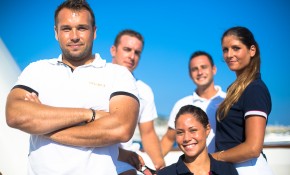
Starting out in yachting? Top 12 FAQs answered.
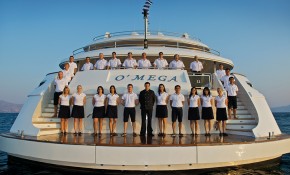
Make your break into yachting

Starting in yachting ? - Download our information guides
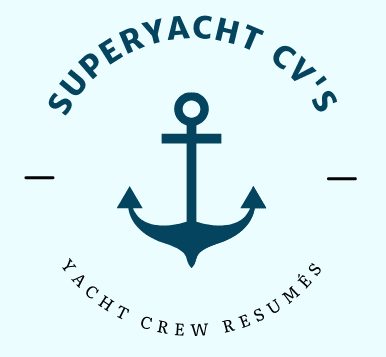
- 0,00€ 0 items
Interview questions you might get asked
As a new yacht crew member, you can expect to be asked a range of questions during the interview process that will help the hiring manager determine if you are a good fit for the position. I want to help prepare you so you can present yourself in the best light.
Take some time to sit down and answer these questions to yourself. You don’t have to have all of the answers, but make sure that you are playing to your strengths and really selling yourself in the interview. Being prepared in an interview can really make all of the difference, not just in how you come across to the captain, but also in how you feel about going into the interview. If you are prepared you will feel confident and you will SHINE!
A few points on setting yourself up for the interview:
Most interviews are done via phone or skype/zoom. They are often with the crew agent first, and then with the Chief Stew, Chief Officer, Chief Engineer, Head Chef or Captain, depending on the position and size of the vessel you are applying for.
- Get yourself in a quiet space. Turn off the music, tv, and keep pets and other distractions out of the room.
- Get comfortable. If that means sitting cross-legged on a couch, do it, if you prefer to sit at a desk, do that. But be as comfortable as you can be while maintaining professionalism.
- Have your own questions written out the for the interviewer. Make sure you cover your own bases on what you want to know about the job, the crew, and the contract.
- Have a glass of water handy. You never know when you need it!
- Don’t be hungover!! Have your wits about you, this is an important interview, treat it as such. I you are tired, hungover or drunk, you will NOT interview well, and you are not suited for yachting long-term.
- Familiarise yourself with the interviewer. Know their name and position if possible, and have a google of the yacht name so you know some of the basics.
- Keep a pen and paper next to you to write notes down.
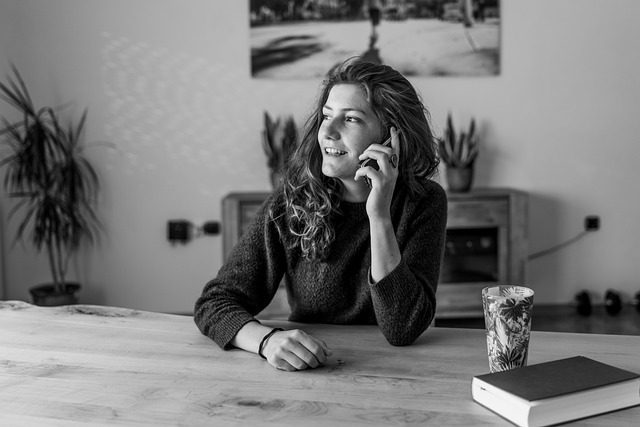
Some common interview questions for yacht crew members may include:
- Can you tell us about your previous experience in the maritime industry?
- Do you have any specific training or certifications that are relevant to this position?
- How do you handle working long hours and being away from home for extended periods of time?
- Can you describe a time when you had to deal with a difficult situation onboard and how you handled it?
- What are your strengths and weaknesses as a yacht crew member?
- Why are you interested in joining our yacht crew, and what do you hope to gain from the experience?
- Can you explain your approach to providing exceptional customer service to our clients?
- How do you handle working in a team environment, and what do you believe is the key to successful teamwork on a yacht?
- Are you comfortable working in a fast-paced and dynamic environment?
- Do you have any questions for us about the position or our yacht?
14 Boat Captain Interview Questions (With Example Answers)
It's important to prepare for an interview in order to improve your chances of getting the job. Researching questions beforehand can help you give better answers during the interview. Most interviews will include questions about your personality, qualifications, experience and how well you would fit the job. In this article, we review examples of various boat captain interview questions and sample answers to some of the most common questions.

or download as PDF
Common Boat Captain Interview Questions
What are the most important qualities for a successful boat captain, what is your experience as a boat captain, what are the biggest challenges you face when captaining a boat, how do you ensure the safety of your passengers and crew, what is your emergency protocol in the event of a mechanical failure or other incident, how do you navigate in adverse weather conditions, what are your thoughts on the role of technology in modern boating, how do you deal with difficult passengers or crew members, what are your strategies for managing stress while on the job, how do you stay up to date on changes in maritime law and regulations, what are your thoughts on the future of the boating industry, how do you plan and execute a successful charter trip, what are your tips for avoiding seasickness while on a boat, what are your favorite and least favorite aspects of being a boat captain.
The interviewer is asking this question to get a better understanding of what qualities the boat captain believes are important for success in the role. This can help the interviewer to understand if the boat captain has the right skills and qualities for the job. It can also help to identify areas where the boat captain may need additional training or development.
Example: “ The most important qualities for a successful boat captain are: 1. Leadership: A boat captain must be able to lead their crew and passengers safely and efficiently. 2. Communication: A boat captain must be able to communicate clearly and effectively in order to give instructions and maintain order. 3. Knowledge: A boat captain must have a thorough understanding of maritime law, safety procedures, and navigation. 4. Experience: A boat captain must have extensive experience operating vessels in various conditions. 5. Responsibility: A boat captain must be responsible for the safety of their crew and passengers at all times. ”
An interviewer would ask this question to a boat captain in order to gauge their experience and expertise in the role. As a boat captain is responsible for the safety of the vessel and its passengers, it is important for the interviewer to ensure that the candidate has the necessary skills and knowledge for the job.
Example: “ I have been a boat captain for over 10 years. I have experience in both power and sailboats, and have captained boats of all sizes. I have experience in both coastal and offshore waters, and have a strong knowledge of maritime law and regulations. I am a skilled navigator and have a keen eye for weather patterns. I am also an experienced fisherman, and have won numerous tournaments. ”
There are many challenges that a boat captain faces when captaining a boat. These challenges can include weather conditions, navigating the waters, and managing the crew. It is important for the interviewer to understand what challenges the boat captain faces in order to gauge their experience and expertise.
Example: “ The biggest challenges I face when captaining a boat are ensuring the safety of my passengers and crew, maintaining the vessel in good condition, and navigating in difficult conditions. ”
The interviewer is asking how the captain ensures the safety of the passengers and crew because it is important for the captain to have a plan in place in case of an emergency. In the event of an emergency, the captain needs to be able to ensure that the passengers and crew are safe.
Example: “ The safety of my passengers and crew is always my top priority. I take a number of measures to ensure their safety, including maintaining a clean and well-organized ship, conducting regular safety drills, and being vigilant at all times. I also make sure to follow all the applicable safety regulations and procedures. ”
One possible reason an interviewer might ask about an emergency protocol is to gauge the captain's level of preparedness and experience. In the event of a mechanical failure or other incident, it is important for the captain to be able to maintain a calm demeanor and take charge of the situation. The interviewer wants to know that the captain is capable of handling an emergency situation and that the crew will be safe in their hands.
Example: “ In the event of a mechanical failure or other incident, the first thing I would do is assess the situation and determine if it is something that can be fixed quickly or if we need to call for help. If it is something that can be fixed, I would attempt to fix it myself or have someone on the boat who is qualified to fix it do so. If it is something that cannot be fixed quickly, I would call for help and follow the instructions of the authorities. ”
The interviewer is trying to gauge the captain's level of experience and expertise. It is important to know how to navigate in adverse weather conditions because it can be dangerous if not done correctly.
Example: “ There are a few different ways to navigate in adverse weather conditions. The first is to use electronic navigation aids, such as GPS or radar. These can be very helpful in determining your position and keeping track of other boats in the area. Another way to navigate in adverse weather is to use visual cues, such as landmarks or buoys. This can be more difficult, but if you know the area well, it can be a good way to stay on course. Finally, you can use dead reckoning, which is basically keeping track of your speed and direction and estimating your position based on that information. This can be tricky, but it's often the only option in very bad weather. ”
There are a few reasons why an interviewer might ask this question. First, they might be interested in your opinion on the role of technology in boating, and how it has changed the industry. Second, they might be curious about your thoughts on the future of boating, and how technology will play a role in that. Finally, they might simply want to get to know you better and learn more about your interests.
Regardless of the reason, it is important to be prepared to answer this question thoughtfully and in detail. When discussing the role of technology in boating, you might want to touch on topics such as GPS and navigation, safety, weather forecasting, and communication. You should also be sure to explain how you think technology has positively or negatively affected the boating industry, and why.
Example: “ I believe that technology has played a vital role in modern boating, and has helped to make it safer and more efficient. For example, GPS systems have made it easier to navigate, while radar and other electronic systems have helped to improve safety. In addition, modern engines are more reliable and fuel-efficient than ever before, thanks to advances in technology. ”
The interviewer is asking this question to gauge the captain's ability to handle difficult situations. This is important because the captain is responsible for the safety of the passengers and crew. If the captain can't handle difficult situations, it could lead to serious problems.
Example: “ There are a few different ways to deal with difficult passengers or crew members, depending on the situation. If someone is being disruptive or causing problems, the first step is to try to talk to them and see if there is a way to resolve the issue. If that doesn't work, or if the person is being abusive, you can ask them to leave the boat. In extreme cases, you may need to call the police. ”
There are a few reasons why an interviewer might ask this question to a boat captain. One reason is that it is important for boat captains to be able to effectively manage stress while on the job. This is because they are responsible for the safety of the passengers and crew on their vessel. If they are not able to effectively manage stress, it could lead to accidents or other safety concerns.
Another reason why an interviewer might ask this question is to gauge the captain's level of experience. If the captain is able to effectively manage stress while on the job, it shows that they have a good amount of experience and are likely capable of handling other difficult situations that may arise.
Finally, this question allows the interviewer to get a sense of the captain's personality and how they would handle stress in a real-life situation. This can be important information when deciding if the captain is a good fit for the company.
Example: “ There are a few key strategies I use for managing stress while on the job. First, I try to stay organized and have a plan for everything I need to do. This helps me stay focused and avoid getting overwhelmed. Second, I take breaks when I feel myself getting stressed out. This allows me to clear my head and come back to the task at hand refreshed. Finally, I always make sure to communicate with my team. This ensures that everyone is on the same page and that we can work together to solve any problems that come up. ”
The interviewer is asking this question to gauge the Boat Captain's commitment to staying up-to-date on changes in maritime law and regulations. This is important because maritime law and regulations are constantly changing, and it is the Boat Captain's responsibility to ensure that they are aware of these changes and are compliant with them.
Example: “ There are a few different ways to stay up to date on changes in maritime law and regulations. One way is to regularly check online resources, such as the website of the International Maritime Organization (IMO). Another way is to subscribe to newsletters or other publications from maritime law organizations or government agencies. Finally, attending conferences and seminars on maritime law is a great way to stay current on the latest developments. ”
There are a few reasons an interviewer might ask a boat captain about their thoughts on the future of the boating industry. First, the interviewer could be trying to gauge the captain's understanding of the industry and its trends. This is important because it shows whether the captain is keeping up with changes in the industry and is able to adapt their business accordingly. Second, the interviewer could be interested in the captain's opinion on how the industry will develop in the future. This is important because it gives insight into the captain's strategic thinking and their ability to anticipate change. Finally, the interviewer could be looking for ideas on how to improve the industry. This is important because it shows that the captain is proactive and has a vision for the future.
Example: “ The boating industry is facing a number of challenges in the coming years. One of the biggest challenges is the increasing cost of fuel and boat maintenance. As fuel prices continue to rise, it will become more and more difficult for people to afford to go boating. In addition, the cost of boat maintenance and repairs is also on the rise. This is due to the fact that boats are becoming increasingly complex and require more specialized skills to maintain them. As a result, the number of people who are able to afford to keep their boats in good condition is declining. Another challenge facing the boating industry is stricter environmental regulations. In recent years, there has been an increased focus on protecting the environment from the harmful effects of boating activities. This has led to stricter regulations regarding boat emissions and noise levels. As a result, many boat manufacturers are having to make significant changes to their products in order to meet these new regulations. This is likely to lead to an increase in the cost of boats, as well as a decrease in their performance. Finally, the boating industry is also facing competition from other forms of recreation such as camping, hiking, and biking. These activities are often seen as being more environmentally friendly than boating, and they can be ”
There are a few reasons why an interviewer might ask a boat captain how they plan and execute a successful charter trip. First, it allows the interviewer to gauge the captain's level of experience and expertise. Second, it helps the interviewer understand the captain's process for planning and executing a trip, which can be helpful in determining if the captain is a good fit for the position. Finally, it gives the interviewer insight into the captain's overall management style and how they handle charter trips.
Example: “ The first step is to consult with the client to determine their needs and preferences. This includes factors such as the number of passengers, the desired destination, the length of the trip, and any special requests or requirements. Once this information is gathered, the captain can begin to plan the trip. The next step is to develop a route and itinerary that will meet the needs of the client while also ensuring a safe and enjoyable journey. This planning process takes into account things like weather conditions, tides, currents, and other potential hazards. The captain will also need to consider the capabilities of the vessel and its crew when developing the plan. Once the route and itinerary are finalized, the captain will begin to prepare for the trip. This includes making sure that the vessel is in good working condition and stocking it with supplies necessary for the journey. The captain will also need to ensure that all required paperwork and documentation is in order. When everything is ready, the captain will set sail with their passengers and begin the charter trip. During the voyage, they will be responsible for navigating the vessel, monitoring conditions, and making any necessary adjustments to the plan. The captain will also be responsible for ensuring that everyone on board is safe and comfortable. ”
There are a few reasons why an interviewer might ask this question to a boat captain. First, it shows that the interviewer is interested in the captain's experience and expertise. Second, it allows the captain to share any tips or advice that he or she has for avoiding seasickness. Finally, it gives the captain an opportunity to talk about the importance of safety while on a boat.
Example: “ There are a few things you can do to avoid seasickness while on a boat: 1. Get plenty of rest before your trip. 2. Eat a light meal before boarding the boat. 3. Avoid alcohol and caffeine. 4. Stay hydrated by drinking plenty of water or ginger ale. 5. Sit in an area of the boat where you can see the horizon. 6. Get some fresh air by spending time on the deck or open window. 7. If you start to feel seasick, lie down and close your eyes. ”
The interviewer is trying to gauge the Boat Captain's level of satisfaction with the job, and to identify any areas of improvement. This is important because it can help the company to better understand the needs of its employees and to make improvements where necessary. Additionally, it can help the interviewer to get a sense of the Boat Captain's personality and how they might fit into the company culture.
Example: “ There are many aspects of being a boat captain that I enjoy. I love being out on the water, exploring new places, and meeting new people. I also enjoy the challenge of piloting a vessel and the satisfaction of completing a successful voyage. There are also some aspects of being a boat captain that I do not enjoy. I can get very lonely at times, especially when sailing solo. I also miss the comforts of home, such as a warm bed and a good meal. And, of course, there is always the danger of encountering bad weather or other hazards at sea. ”
Related Interview Questions
- Fire Captain
- Police Captain
- Banquet Captain
- Share full article
Advertisement
Supported by
Justice Breyer, Off the Bench, Sounds an Alarm Over the Supreme Court’s Direction
In an interview in his chambers and in a new book, the justice, who retired in 2022, discussed Dobbs, originalism and the decline of trust in the court.

By Adam Liptak
Reporting from Washington
Justice Stephen G. Breyer’s Supreme Court chambers are not quite as grand as those he occupied before he retired in 2022, but they are still pretty nice. As before, they include a working fireplace, which was crackling when I went to visit him on a temperate afternoon in late February to talk about his new book.
In earlier interviews , Justice Breyer could be rambling and opaque. This time he was direct. He said he meant to sound an alarm about the direction of the Supreme Court.
“Something important is going on,” he said. The court has taken a wrong turn, he said, and it is not too late to turn back.
The book, “Reading the Constitution: Why I Chose Pragmatism, Not Textualism,” will be published on March 26, the day the Supreme Court hears its next major abortion case , on access to pills used to terminate pregnancies.
The book devotes considerable attention to Dobbs v. Jackson Women’s Health Organization , the 2022 decision that eliminated the constitutional right to abortion. Justice Breyer, who had dissented, wrote that the decision was stunningly naïve in saying it was returning the question of abortion to the political process.
“The Dobbs majority’s hope that legislatures and not courts will decide the abortion question will not be realized,” he wrote.
He was more forceful during the interview. “There are too many questions,” he said. “Are they really going to allow women to die on the table because they won’t allow an abortion which would save her life? I mean, really, no one would do that. And they wouldn’t do that. And there’ll be dozens of questions like that.”
The book is a sustained critique of the current court’s approach to the law, one that he said fetishizes the texts of statutes and the Constitution, reading them woodenly, without a common-sense appreciation of their purpose and consequences.
Without naming names, he seemed to call on the three members of the court appointed by President Donald J. Trump — Justices Neil M. Gorsuch, Brett M. Kavanaugh and Amy Coney Barrett — to reconsider how they approach the role.
“Recently,” he wrote, “major cases have come before the court while several new justices have spent only two or three years at the court. Major changes take time, and there are many years left for the newly appointed justices to decide whether they want to build the law using only textualism and originalism.”
He added that “they may well be concerned about the decline in trust in the court — as shown by public opinion polls.”
Textualism is a way of interpreting statutes that focuses on their words, leading to decisions that turn on grammar and punctuation. Originalism seeks to interpret the Constitution as it was understood at the time it was adopted, even though, Justice Breyer said in the interview, “half the country wasn’t represented in the political process that led to the document.”
There are three large problems with originalism, he wrote in the book.
“First, it requires judges to be historians — a role for which they may not be qualified — constantly searching historical sources for the ‘answer’ where there often isn’t one there,” he wrote. “Second, it leaves no room for judges to consider the practical consequences of the constitutional rules they propound. And third, it does not take into account the ways in which our values as a society evolve over time as we learn from the mistakes of our past.”
Justice Breyer did not accuse the justices who use those methods of being political in the partisan sense or of acting in bad faith. But he said their approach represented an abdication of the judicial role, one in which they ought to consider a problem from every angle.
In his chambers, he recalled another era, when three different Republican appointees — Justices Sandra Day O’Connor, David H. Souter and Anthony M. Kennedy — largely shared his basic approach to the law.
“Sandra, David — I mean, the two of them, I would see eye to eye not necessarily in the result in every case, but just the way you approach it,” Justice Breyer said. “And Tony, too, to a considerable degree.”
Justice Breyer retired a little reluctantly, under pressure from liberals who wanted to make sure that President Biden could appoint his successor and that the conservative supermajority on the court, currently at 6 to 3, would not get any more lopsided. Justice Ketanji Brown Jackson, a former law clerk to Justice Breyer, now occupies his seat.
Justice Breyer, who was appointed by President Bill Clinton in 1994, has returned to Harvard Law School, where he taught before becoming a judge. But he said he missed his old job.
“When you’re a professor, you’re mostly involved in what people decided already in the past,” he said. “When you’re a judge, you’re also interested in that, but what you’re deciding is going to affect present and future. And that’s hard. Because you don’t really know how it will work out. You have to do your best there. I like that kind of job.”
He shrugged, seeming to contemplate the passage of time. “What can you do?” he asked. “It’s the human condition.”
Justice Breyer’s critics say his approach allows judges too much freedom to turn their preferences into law. I asked him for an example of a case in which the law required him to reach a conclusion at odds with his personal views.
“What about all the capital punishment cases?” he asked. Though he urged the court in a 2015 dissent to reconsider the constitutionality of the death penalty, he did not adopt the practice of some earlier justices of dissenting in every capital case. “That doesn’t mean I approved,” he said.
He added, more generally, that he hoped his book would reach both a broad audience and a narrow one.
“I’d love people to read it,” he said. “I’d like for you to agree with me. So would every author. I’d like even to get the members of this court to read it and to say, ‘Oh, not a bad point. Not a bad point.’ And that’s all.”
Adam Liptak covers the Supreme Court and writes Sidebar, a column on legal developments. A graduate of Yale Law School, he practiced law for 14 years before joining The Times in 2002. More about Adam Liptak
I interned at JPMorgan and then moved up the ranks. Here's how I nailed the interview and landed my full-time offer.
- Alexis Taub worked at JPMorgan as an intern, analyst, and associate at the start of her career.
- She says demonstrating excitement, curiosity, and helpfulness helped her land a full-time offer.
- Her advice for aspiring applicants is to build your résumé years in advance and study the company.

This as-told-to essay is based on a conversation with Alexis Taub , a former JPMorgan employee from New York City. It has been edited for length and clarity.
I was hired two years in a row for summer internships at JPMorgan . The first internship was in securities, and the second was in prime brokerage as an account manager.
I was hired full time as an analyst in prime brokerage in 2015 and was eventually promoted to associate. I stayed at the firm until 2018.
The application and interview process for the prime-brokerage roles was comprehensive, and there was a steep learning curve on how to assist clients. I mainly supported and learned from more-senior team members until becoming an associate, where I was the main point of contact for my assigned customers.
Here's my advice on how to navigate the interview and get hired at JPMorgan .
The internship program is one of the best ways to get a full-time position at the firm
I decided I wanted to work in finance freshman year, and I set my sights on JPMorgan , given its reputation as an industry leader with an amazing culture. Interning during my sophomore year allowed me to learn about the company, figure out the most compelling groups, and network throughout the summer.
The full-time analyst class is almost all people who were part of the internship program. It's difficult to get an analyst position without completing an internship.
I didn't have to interview for the full-time position. On the last day of the internship, everyone met with HR and was either presented with an offer letter or told they weren't offered a position.
Start building your résumé years in advance
Start as early as possible to build experience, participate in extracurriculars relevant to your desired position, and show your passions. I fundraised for breast-cancer research, was a teaching assistant for a marketing and business-analysis course, and was a peer mentor.
Related stories
Extracurriculars should be something you're genuinely interested in and should show a story over multiple years. They're discussed in the interview, and a candidate's passion for these activities comes through — especially with follow-up questions.
Research the job position and the different groups
Researching the company is essential for positions right out of college. For JPMorgan 's internship and analyst programs, you're usually placed in a large group with many different focus areas. You can have a particular interest in one, but be knowledgeable about all of them. I was drawn to prime brokerage because it's fast-paced, and I wanted to be in a client-facing role.
I interviewed with the prime-brokerage group and three other departments. If you're only familiar with one group, it will show up negatively to the other groups you talk to.
Everyone asked me the same question
The first question I was asked by all four of the people who interviewed me was " tell me about yourself ." You should be prepared with a solid answer because that will set the tone for the interview. Answers should be concise, show your passion for the position, and share a bit about yourself.
I rehearsed my answer over and over again. I showed my research on the department and positions within and shared background on my coursework and my previous internships, as well as the parts of the job that most interested me. You should mention anything that helps you stand out and shows you in a positive light, like accomplishments and grades .
In one interview, I was given a couple of brain puzzles, like how big is this room? The main objective of this question was to show how you approach a challenge, not if you know the correct answer. I counted the tiles on the ceiling and said, "Let's assume each one is one foot." While I knew they weren't one foot, I tried to choose a number that kept the math simple.
Once you land an internship, you go back for placement day
When you're granted a spot in the internship program, you go in again to find out who you'll be working with.
On placement day, each intern meets with more than 20 groups to learn about the specific roles within the larger investor services. It's then a matching game. The interns rank the groups they'd like to be in, and the groups rank the interns. I got my top group during my second year, and then my analyst offer was to that group.
The best way to get a full-time job from the internship is to demonstrate 3 traits
If you want a full-time offer at the end, show your excitement for the position, be curious, and be as helpful as possible. I was constantly asking my team what I could help with.
I couldn't have had a better job to start my career. My JPMorgan teammates spent hours each day helping me with tasks most people wouldn't want to be bothered with — whether it was strategies for organizing my inbox or proofreading my emails. I also had an incredible manager who dedicated a substantial amount of time to teaching me the nuances of prime brokerage.
I was happy with the work-life balance
The typical day was 8 to 6, and most people would leave by 6. While it could be intense during the day with clients, I was not expected to work once I left for the day and was happy with my work-life balance .
I always wanted to start my own business, so with the manageable hours, I was able to start a direct-to-consumer jewelry website, which eventually became the full-time job I have now.
There are endless career opportunities at JPMorgan . I recommend scouring the website beyond just the classic investment-banking and sales-and-trading positions to find one that aligns with your skills and interests.
Watch: Marketing leaders from Amazon, LinkedIn, Lego Group and more tell Insider what pandemic-fueled business changes are likely to stick around
- Main content
Don Lemon Grills Elon Musk About Drug Use, Hate Speech on X and His Meeting With Donald Trump in Contentious Interview: ‘Choose Your Questions Carefully’
By William Earl
William Earl
- Miami Film Festival to Honor Sheryl Lee Ralph and Michael Showalter 2 days ago
- Eva Longoria and Cris Abrego’s Hyphenate Media Group Sets Leadership Team 3 days ago
- Variety Announces Additional Speakers and Programming for Entertainment Marketing Summit 6 days ago

Don Lemon has released his hour-long interview with Elon Musk , after the former CNN journalist claimed that it upset the X (formerly Twitter) owner so much that Musk canceled the launch of a new interview show named “The Don Lemon Show” that the pair had been planning together.
During one section of the interview, Lemon asked about Musk taking a puff of weed on “The Joe Rogan Experience,” and then inquired about the tech mogul’s ketamine prescription.
Lemon then asked if Musk ever abused ketamine, which Musk denied, saying he took a small amount about every other week.
Things got especially contentious during the last stretch of the interview, when Lemon asked Musk about advertisers pulling out of X as a result of not wanting their content to be near what they perceived to be unmoderated hate speech.
Lemon questioned Musk about said companies, asking, “Why is that not a form of free speech? They are free to advertise where they want.”
“Whereas the other platforms will censor on behalf of other advertisers, the X platform will not,” Musk said.
After a back and forth, Lemon pushed further about advertisers, saying, “So you said, ‘If they kill the company, it’s them’ — but doesn’t the buck stop with you?”
“Choose your questions carefully — there’s five minutes left,” Musk retorted.
Lemon also asked Musk about meeting with Donald Trump recently in Florida.
“I was at a breakfast at a friend’s place and Donald Trump came by — that’s it,” Musk said, downplaying the conversations, adding, “Let’s just say he did most of the talking. The normal things he says. There was nothing particularly groundbreaking or new. President Trump likes to talk.
Musk said Trump also did not ask him for any money or campaign finances.
Watch the full interview below.
More From Our Brands
Pattie boyd sells private collection, including george harrison and eric clapton artifacts, for $3.6 million, billionaire marc andreessen’s longtime silicon valley estate just popped up for sale at $33 million, arizona’s sweet 16 run a bright spot amid $30m budget shortfall, the best loofahs and body scrubbers, according to dermatologists, alice & jack’s domhnall gleeson weighs in on why jack tolerates this ‘tempestuous’ relationship, verify it's you, please log in.
Transcript of Biden's interview with special counsel Robert Hur shows memory lapses — but also detailed exchanges
WASHINGTON — Special counsel Robert Hur’s bombshell report on President Joe Biden’s handling of classified documents concluded that he presented himself as an “elderly man with a poor memory” who was unable to remember key dates, including when he served as vice president or the year his son died.
Biden, for his part, has lambasted Hur for bringing up the topic of Beau Biden’s death, and his lawyers have criticized the report .
But the transcript of Biden’s interview, which was reviewed by NBC News, paints a more nuanced picture on both sides.
Follow live coverage of Hur's testimony here.
Despite the president’s assertion that Hur brought up his son’s death first, the transcript shows that it was Biden himself who did so, as NBC News has reported .
Biden, who often appeared to be thinking out loud in response to specific questions, at other points recalls in detail specific events from his time as vice president.
Biden spoke with Hur for 3½ hours Oct. 8, and for 90 minutes the next day. The timing was fraught, with a major international crisis having broken out Oct. 7 when Hamas attacked Israel.
Biden faced a barrage of questions from Hur and another federal prosecutor about documents he saw as vice president, where and how he stored them and why some sensitive materials remained in his possession for more than five years after he left office as vice president.
At one point, Hur acknowledged that some of his questions would “relate to events that happened years ago.” Biden joked in response: “I’m a young man, so it’s not a problem.”
According to the review of the transcript, Biden at times expanded beyond the narrow subject areas of particular questions. At one point, he described in vivid detail a 2011 visit to Mongolia, where he displayed unexpected archery skills at a cultural performance in his honor.
Biden also often said he could not recall a specific incident or, for instance, why certain items were packed in certain ways. And at times, he or his attorneys challenged the prosecutors about the relevance or accuracy of questions they posed, with Biden at one point challenging the logic of one of Hur’s lines of questioning.
The full transcript was provided to Congress on Tuesday, according to a source familiar with the matter. House Judiciary Committee Chair Jim Jordan, R-Ohio, and Oversight Committee Chair James Comer, R-Ky., subpoenaed it and other materials related to the investigation.
Biden allies believe a full reading of the transcript will only bolster their contention that Hur’s characterization of Biden during the interview was not based in reality. If anything, they argue, Hur’s at-times meandering questioning may have contributed to the confusion.
Hur’s assessment of Biden’s mental fitness is likely to be front and center as Hur makes his first public appearance since the report was released last month, testifying Tuesday before Republican-led committees on Capitol Hill.
In his opening statement, Hur planned to defend his investigation, the final report and his treatment of Biden’s age.
“I knew that for my decision to be credible, I could not simply announce that I recommended no criminal charges and leave it at that. I needed to explain why,” Hur planned to say, according to an advance copy of his remarks.
In discussing the president’s age, Hur will say that his characterization was “necessary and accurate and fair.”
“What I wrote is what I believe the evidence shows, and what I expect jurors would perceive and believe," he will say. "I did not sanitize my explanation. Nor did I disparage the President unfairly.”
Beau Biden’s death year
While the White House welcomed Hur’s decision not to bring criminal charges, officials bitterly protested against the report he submitted to the Justice Department. Bob Bauer, the president’s personal attorney, accused Hur of “investigative excess” and said his report “flouts Department regulations and norms.”
In a letter to Hur before the report was released, Bauer and Richard Sauber, special counsel to the president, said that Hur’s comments about Biden’s memory were not “ accurate or appropriate ” and that they used “highly prejudicial language to describe a commonplace occurrence among witnesses: a lack of recall of years-old events.”
Speaking to reporters the night the report came out, Biden flashed anger at Hur’s suggestion that he did not recall, “even within several years, when his son Beau died.”
“How in the hell dare he raise that?” Biden said . “I don’t need anyone, I don’t need anyone to remind me of when he passed away.”
Hur’s yearlong probe took him deep in the weeds of perhaps the most fraught period of Biden’s half-century in public life. Biden left office in 2017, nearly two years after he buried his son. Beau Biden’s death from cancer and Biden's decision not to seek the presidency in 2016 began an unpredictable series of events that would ultimately take him back to the White House in 2021.
It was in trying to share some of that timeline that Biden, in his interview with Hur, made a mistake that Hur ultimately seized on in his report’s damning conclusion.
But even though Biden said Hur brought up the subject of his son’s death, it was, as NBC News has reported , first raised by Biden himself. Roughly midway through the first day of his interview, Hur asked Biden about where he might have stored documents related to the work he was engaged in after he left the vice presidency in 2017.
“Remember, in this time frame, my son is — either been deployed or is dying,” Biden said.
As he continued thinking back to the period, he appeared to conflate his consideration of running in the 2016 election, in the months after Beau Biden died in 2015, with the early considerations of a 2020 bid after he left office.
“Even though I’m at Penn,” he said, referring to the Penn Biden Center, which was established after he left office, “I hadn’t walked away from the idea that I may run for office again.”
Biden then asked what month his son died before quickly stating the date: May 30. The transcript indicates others present interjected to specify the year: 2015.
“And Trump got elected in November of 2017,” he said, before the transcript indicates another participant corrected him to say 2016.
“Yeah, OK. But that’s when Trump gets sworn in then,” he said, before he went into a description of the book “Promise Me, Dad,” which he would spend the next year writing, documenting the years leading up to and following his son’s death.
“This is personal,” he said.
There were other points during the two days of questioning when Biden appeared to misalign specific events to the right years. Discussing the moving of items in 2019 from a home he rented in Virginia to Delaware, he said he needed the furniture to set up a home studio to do media appearances during the coronavirus pandemic, which began a year later.
Zooming out
Those moments are likely to provide fodder for Republicans eager to further political attacks on Biden’s ability to continue serving in office. Tuesday’s hearing comes just days after Biden’s performance in the State of the Union address, which was applauded by fellow Democrats.
A full reading of the more than 250 pages of the transcripts reveals often mundane and prolonged back-and-forth discussions between Biden and the prosecutors about the ways he reviewed classified documents as vice president and how his belongings were transported among the White House, his Delaware home and other locations.
The two days of questioning had minimal breaks, with Biden often rejecting suggestions to pause the proceedings.
“I’d rather just keep going. I’ll go all night if we get this done,” he said toward the end of the first day’s session.
Biden’s lawyers at times interjected when they took issue with prosecutors’ line of questioning, with Bauer at one point telling Hur he should not “put him in a position where he has to speculate or create assumptions, or try to engage in detective work.”
“I think we’re kind of going down a trail here that I find confusing,” Bauer said at another point. “They’re obviously trying to establish something,” Biden surmised.
Biden’s careerlong work in foreign policy was evident from start to finish. The sessions began with Hur acknowledging, without specifying, the Oct. 7 Hamas attack on Israel.
“I know there’s a lot of other things in the world going on that demand your attention,” Hur began. “We may be interrupted by one,” Biden responded, adding he had just spoken to Israeli Prime Minister Benjamin Netanyahu.
Biden at another point described the role he played as President Barack Obama’s No. 2.
“I’d be the guy that’d basically take the heat, which I was prepared to do because I knew as much as they did,” Biden said, referring to early deliberations in the Obama administration about the future of the war in Afghanistan.
He also noted that some of the issues he was dealing with as vice president continue today. One significantly redacted part of the transcript comes in the context of Biden’s recalling meetings he held as vice president with lawmakers in connection with the Iran nuclear deal. And discussing items Justice Department officials found about Pope Francis’ visit to the U.S. in 2015, Biden noted he remains in touch with Francis.
“He’s my ticket,” Biden said, before making it clear he was joking.
Lighter moments
Even amid tense discussions, Biden often found ways to lighten the mood. At several points he teased investigators about their various searches of his properties.
“I just hope you didn’t find any risqué pictures of my wife in a bathing suit, which you probably did. She’s beautiful,” Biden said at one point.
After a prolonged discussion of boxes found in Biden’s garage, Hur asked colleagues whether there were any other questions.
“Yeah. When am I going to get the rest of it cleaned out?” Biden said.
Biden was particularly keen at one point to discuss his love of cars, in connection with questioning about boxes found near his Corvette. At one point the transcript includes “Makes Car Sound” to capture Biden’s comments.
Mike Memoli is an NBC News correspondent.
Many of the offers appearing on this site are from advertisers from which this website receives compensation for being listed here. This compensation may impact how and where products appear on this site (including, for example, the order in which they appear). These offers do not represent all available deposit, investment, loan or credit products.
7 Questions You Should Never Ask During a Job Interview (And 3 You Really Should)

Interviewing for a new job can be stressful, and preparation is important. You can’t know exactly what questions the interviewer will ask you, but you can be well-prepared for what is often one of the last questions: “Do you have any questions for me?”
Since this question often comes near the end of the interview, the questions you ask can leave a lasting impression.
Here are seven questions you should never ask during a job interview and three you should.
7 Questions You Should Not Ask
Stay away from these questions during a job interview.
What Does Your Company Do?
Any basic question like this is a big red flag that you haven’t done your homework. Before you walk in the door (or join the Zoom call), you should know as much about the company as its website will tell you.
What Is the Salary?
Many companies are starting to quote salary in their job postings — it’s required in some states. But if they don’t, stay away from this question on the first interview. If the interviewer brings it up, that’s fine, but don’t ask in the first round.
Can I Work From Home Instead of the Office?
Unless the job posting indicates it’s a work-from-home or hybrid role, don’t ask if you can work from home. If you get an offer, and you know that some employees work from home, you can ask at that time.
How Much Time Off Will I Get?
Asking this question during the first interview makes it look as though you’re more interested in not working than you are in working. A salary and benefits discussion will come later on down the line, and this will be covered. Don’t bring it up in the first round.
What Is the Worst Thing About Working for This Company?
No company is perfect, and it’s helpful to get a read on what the issues may be, but this is not the way to do it. It’s better to ask what they like about working there and consider what they don’t mention. Also, job review sites like Glassdoor can help you figure out where the pitfalls may lie.
Are You Going To Do a Background Check?
A prospective employer should notify you if they’re going to do a background check, but even if they don’t, you should assume that they will. You should also assume that they will contact your references if you provide them. Asking this question out loud makes it look like you have something to hide.
Do You Have Children?
Personal questions like this are off limits regardless of which side of the table you are on. You can ask about work/life balance without asking the interviewer to disclose their personal situation.
3 Questions You Should Ask
Now that you know which kinds of questions you should stay away from, here are some questions you may want to ask an interviewer.
What Does Success Look Like in This Position?
You can even put a time frame on this one and ask, “What do I need to do to be successful in my first three months? My first year?”
Are There Professional Development Opportunities in This Role?
This shows the interviewer that you’re interested in forwarding your career with this company.
What Are the Next Steps in This Process?
This indicates that you’re interested in the position and want to know what happens next.
Remember that a job interview is a two-way street, so rake advantage of the opportunity to ask questions like these to gauge whether the job will be a good fit — for you and for the hiring company.
More From GOBankingRates
- Downsizing for Retirement? Avoid These 6 Mistakes
- 5 Rare Coins That Sold for At Least $600,000
- These 10 Aldi Brand Products Are Worth Every Penny
- The Biggest Mistake People Make With Their Tax Refund -- And How to Avoid It
Share This Article:
- Best Side Gigs
- Best Side Hustle Ideas
- Best Online Side Hustles
- Best Games That Pay Real Money
- Best Games That Pay Instantly
- Best Money-Making Apps
- Best Ways To Make $1,000 Fast
- Best Things To Sell To Make Money
Related Content

7 Well-Paying Side Gigs for People Who Speak Another Language
March 22, 2024

The 4 Cities Millionaires Are Going in 2024 -- It's Not New York Anymore

3 Things Are Skyrocketing from Biden's Inflation

How To Make Your Paycheck Last Longer
March 24, 2024

10 Strategies To Make Quick Cash By Recycling Old Electronics
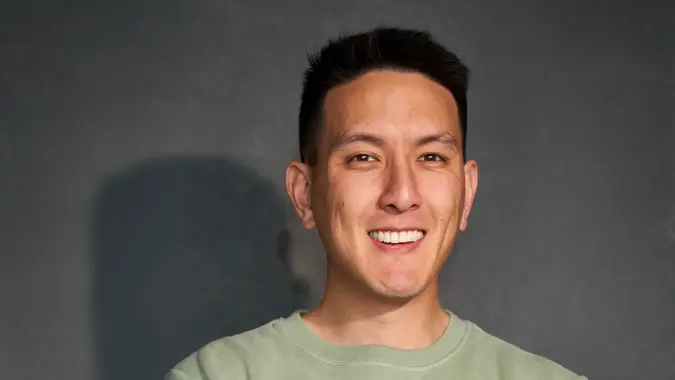
9 Major Money Milestones To Hit in Your 30's, According to Expert Humphrey Yang
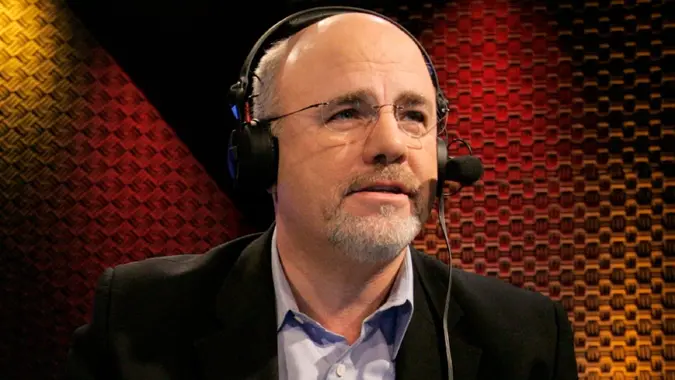
Here's What Dave Ramsey Gets Wrong About Child Care Costs

Retired and Want Extra Cash? How To Become a 'Seniorpreneur'
March 21, 2024

7 Reasons Why 'Get-Rich-Quick' Plans Fail

How To Earn $4,000 a Month in Passive Income

12 Realistic Ways To Make Your First $1 Million

10 Commemorative Coins Worth Over $100 -- How To Gauge Their Value
March 23, 2024

25 Major Cities Where the Value of Your Paycheck Is Plummeting

Robert Kiyosaki's Top 6 Tips That Will Save You From Financial Disaster

Why Pandemic Retirees Have To Head Back To Work

Why White Collar Jobs Are Becoming Harder To Get

Sign Up For Our Free Newsletter!
Get advice on achieving your financial goals and stay up to date on the day's top financial stories.
By clicking the 'Subscribe Now' button, you agree to our Terms of Use and Privacy Policy . You can click on the 'unsubscribe' link in the email at anytime.
Thank you for signing up!

BEFORE YOU GO
See today's best banking offers.

Sending you timely financial stories that you can bank on.
Sign up for our daily newsletter for the latest financial news and trending topics.
For our full Privacy Policy, click here .

IMAGES
VIDEO
COMMENTS
As a yacht enthusiast, landing a job in the yachting industry can be a dream come true. However, the hiring process can be quite competitive, and it's important to come prepared to impress the hiring manager. To help you prepare, we've compiled a list of common yachting interview questions and tips on how to answer them effectively.
This questions always puts you on the spot and under pressure. Answering can I have 24 hours to think it over, will show methodical thinking. This is not an opportunity to inform the yacht you are waiting on another offer and you will take the higher. Do however tell the interviewer you are speaking with another yacht.
Show them that you are exactly what they need and that you are enthusiastic about the job. 3. Be punctual. Being on time for your interview reflects your level of professionalism, reliability, and attention to detail, which are essential qualities in the yachting industry. When an owner, Captain, Head of the Department or a recruitment agent ...
It's not always an easy task but the team at wilsonhalligan crew recruitment have shared some examples of top interview questions that you could use to learn more about the applicant… When interviewing try to follow the 80/20 rule where you, as the interviewer, do 80 per cent of the listening and 20 per cent of the talking.
Common Yacht Captain interview questions, how to answer them, and example answers from a certified career coach. InterviewPrep Career Coach. Published Sep 1, 2023. Sailing the high seas as a Yacht Captain takes more than just expertise in navigation and seamanship. It demands leadership, crisis management skills, and a deep understanding of ...
This question gives you the opportunity to highlight your unique skills and strengths that make you a good fit for the role. Be sure to focus on qualities that are relevant to the position, such as teamwork, attention to detail, or a strong work ethic. Example answer: "I would say that my strengths as a yacht crew member include my ability to ...
Five key tips to succeed in a yacht job interview. Turn your mobile phone off before the interview. Show that you are eager to learn. Remember to thank the captain for his or her time. If you are keen to take the job, say so and communicate that you will represent the yacht well. Be ready to move quickly, yacht jobs are usually short-notice or ...
12. Describe your experience with first aid and other emergency procedures. The interviewer may ask this question to learn more about your experience with first aid and other emergency procedures. This can help them determine if you have the skills necessary to keep their crew safe while on board a yacht.
Its a powerful question and one of my favourite "Top Tips". LISA FROST - Captain's Department. 11. Keep positive and listen with attention to the questions, take your time to respond with clear motivations on why you are the best person for that particular position/yacht. CHLOE COLLET - Captain's Department.
Convey resilience, commitment, and team spirit. Turn your mobile phone off before the interview. Show that you are eager to learn. If you are keen to take the job, say so and communicate that you will represent the yacht well - just don't come across as desperate. Remember to thank the captain/interviewer for their time.
This questions always puts you on the spot and under pressure. Answering can I have 24 hours to think it over, will show methodical thinking. This is not an opportunity to inform the yacht you are waiting on another offer and you will take the higher. Do however tell the interviewer you are speaking with another yacht.
30. An exciting (and nerve-wracking) part of getting your first yachting job is getting the call or email to say you've been short-listed for an interview. You may wonder how to prepare for your yachting interview. In this post I share 5 questions to ask in your interview and why. It will give you a good insight into the yacht you're being ...
Ask plenty of questions to help drive your interest to the employer. Be sure to express honesty and positivity throughout the interview process as well as showcase your initiative, confidence, and commitment to teamwork. After all, a yacht crew isn't a one-person show as you will be working with other crew members aboard.
30 Yacht Stewardess Interview Questions and Answers. Common Yacht Stewardess interview questions, how to answer them, and example answers from a certified career coach. InterviewPrep Career Coach. Published Oct 15, 2023. Stepping into the world of luxury yachting as a stewardess is no easy task. From maintaining meticulous standards to ...
Whilst an interview is the Captain or Chief Stewardess's chance to get to know you and suss you out, it is also an opportunity for you to do the same. Here are 7 questions you definitely need to be asking in your yacht job interview.
Research the yacht and the duties involved as much as possible - ready to answer interview questions and prepared to ask informed questions. A hiring manager wants to hear that you are looking to commit to the contract and are fully aware of the hard work expected of you. He wants to hear that your motivation is career development, passion ...
Expert yacht crew recruiter, Laurence Lewis, discusses the best way to answer one of the most important questions for all yacht crew; for deckhands, interior...
Revise standard interview questions and be honest about your experience. Listen carefully and take an interest in everything the employer is saying. When offered the opportunity, ask some questions on things like; itinerary, the crew dynamic, how often the boss comes onboard. Asking questions shows that you are keen, interested and want to know ...
Laurence Lewis, Director of YPI Crew, world leader in yacht crew recruitment, gives help for you to answer that tricky job interview question "Tell me about ...
With this question, it's very important to remain professional but be honest. For example, a good answer would be " I enjoy the yacht and crew however; the role does not challenge me and I am ...
As a new yacht crew member, you can expect to be asked a range of questions during the interview process that will help the hiring manager determine if you are a good fit for the position. I want to help prepare you so you can present yourself in the best light. ... Some common interview questions for yacht crew members may include:
Researching questions beforehand can help you give better answers during the interview. Most interviews will include questions about your personality, qualifications, experience and how well you would fit the job. In this article, we review examples of various . yacht broker interview questions and sample answers to some of the most common ...
Example: "The most important qualities for a successful boat captain are: 1. Leadership: A boat captain must be able to lead their crew and passengers safely and efficiently. 2. Communication: A boat captain must be able to communicate clearly and effectively in order to give instructions and maintain order. 3.
In an interview in his chambers and in a new book, the justice, who retired in 2022, discussed Dobbs, originalism and the decline of trust in the court. By Adam Liptak Reporting from Washington ...
Don Lemon tells CNN that his partnership with Elon Musk was canceled after he conducted an interview with the billionaire for the debut episode of his new independent web-based show.
The first question I was asked by all four of the people who interviewed me was "tell me about yourself." You should be prepared with a solid answer because that will set the tone for the interview.
Don Lemon has released his hour-long interview with Elon Musk, after the former CNN journalist claimed that it upset the X (formerly Twitter) owner so much that Musk canceled the launch of a new ...
Biden spoke with Hur for 3½ hours Oct. 8, and for 90 minutes the next day. The timing was fraught, with a major international crisis having broken out Oct. 7 when Hamas attacked Israel.
Practice nursing interview questions. Be sure to take notes as you think of possible scenarios or responses. There are also countless resources available to assist you with mock interviews. Develop a professional resume and a well-written cover letter. Print an extra copy (or two) with references from prior nurse managers or nursing instructors ...
Since this question often comes near the end of the interview, the questions you ask can leave a lasting impression. Here are seven questions you should never ask during a job interview and three you should. 7 Questions You Should Not Ask. Stay away from these questions during a job interview.